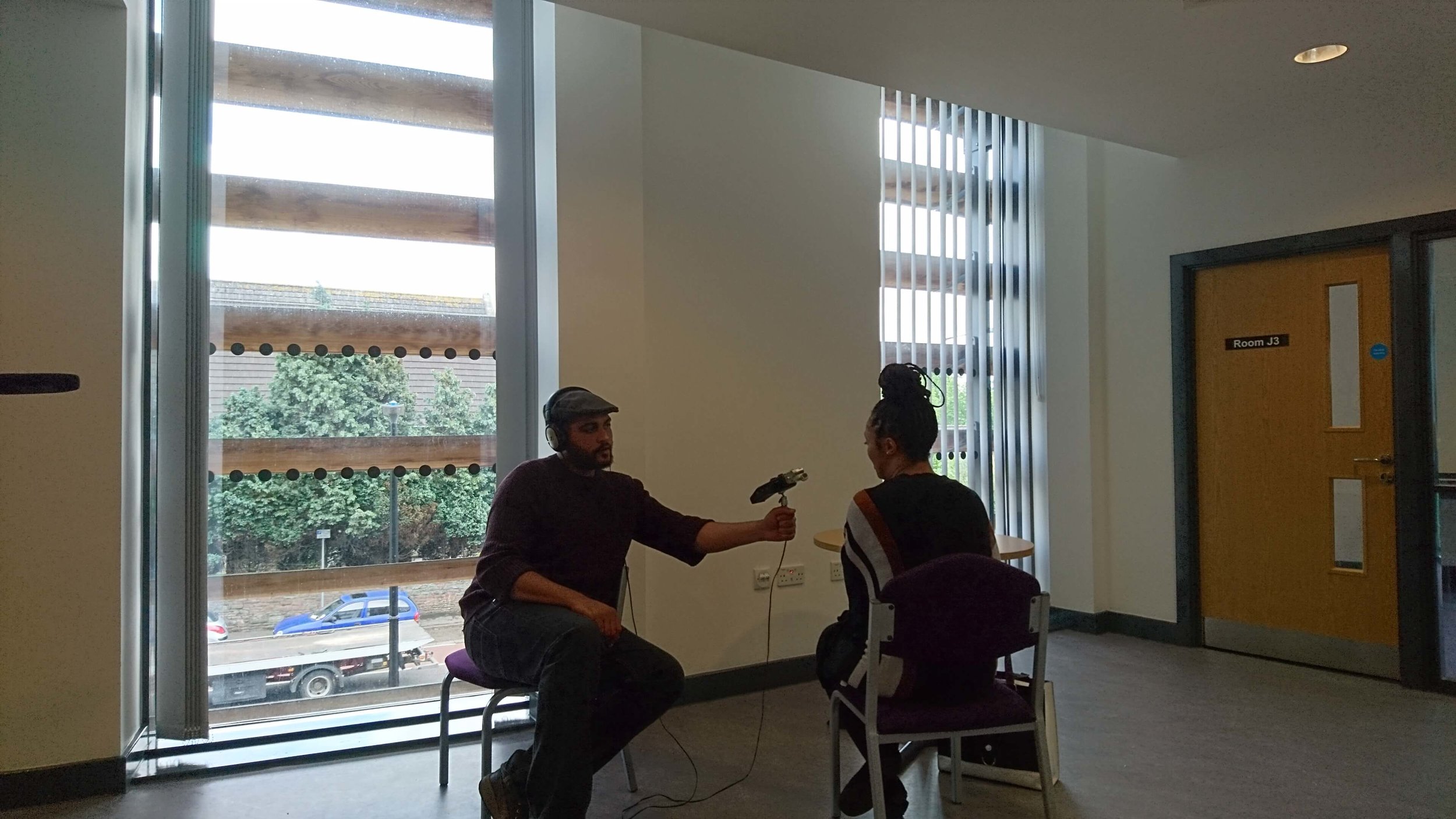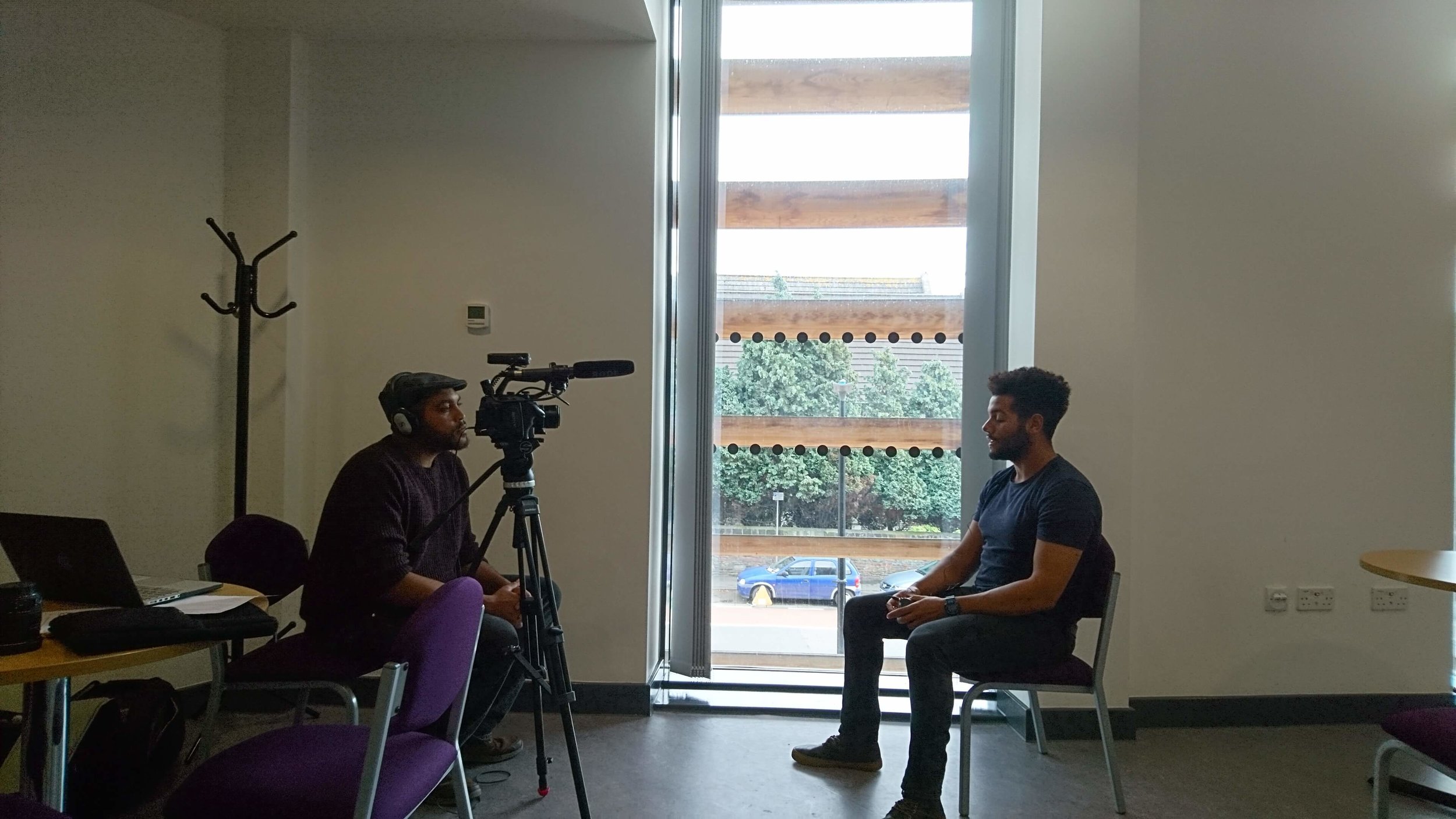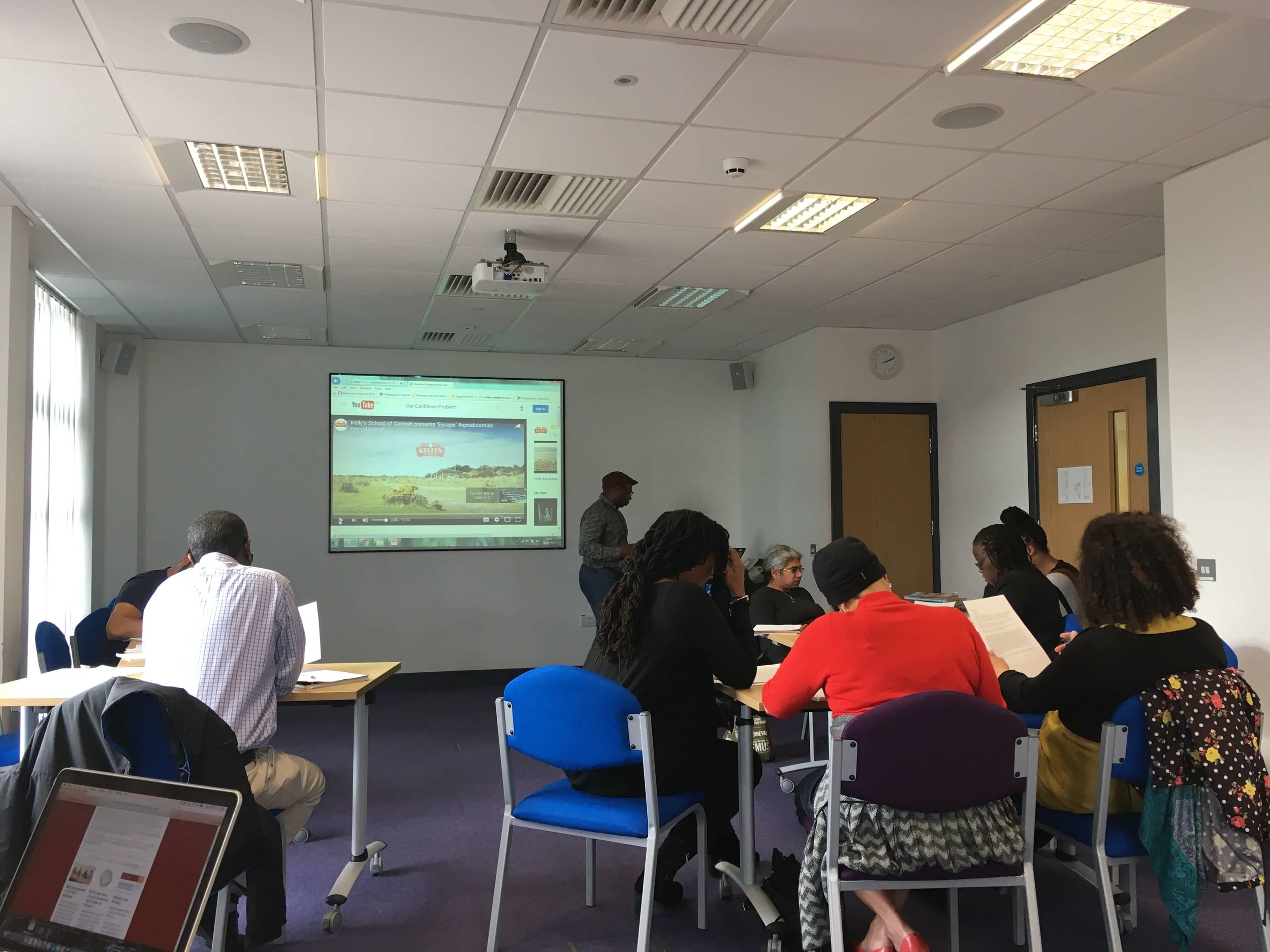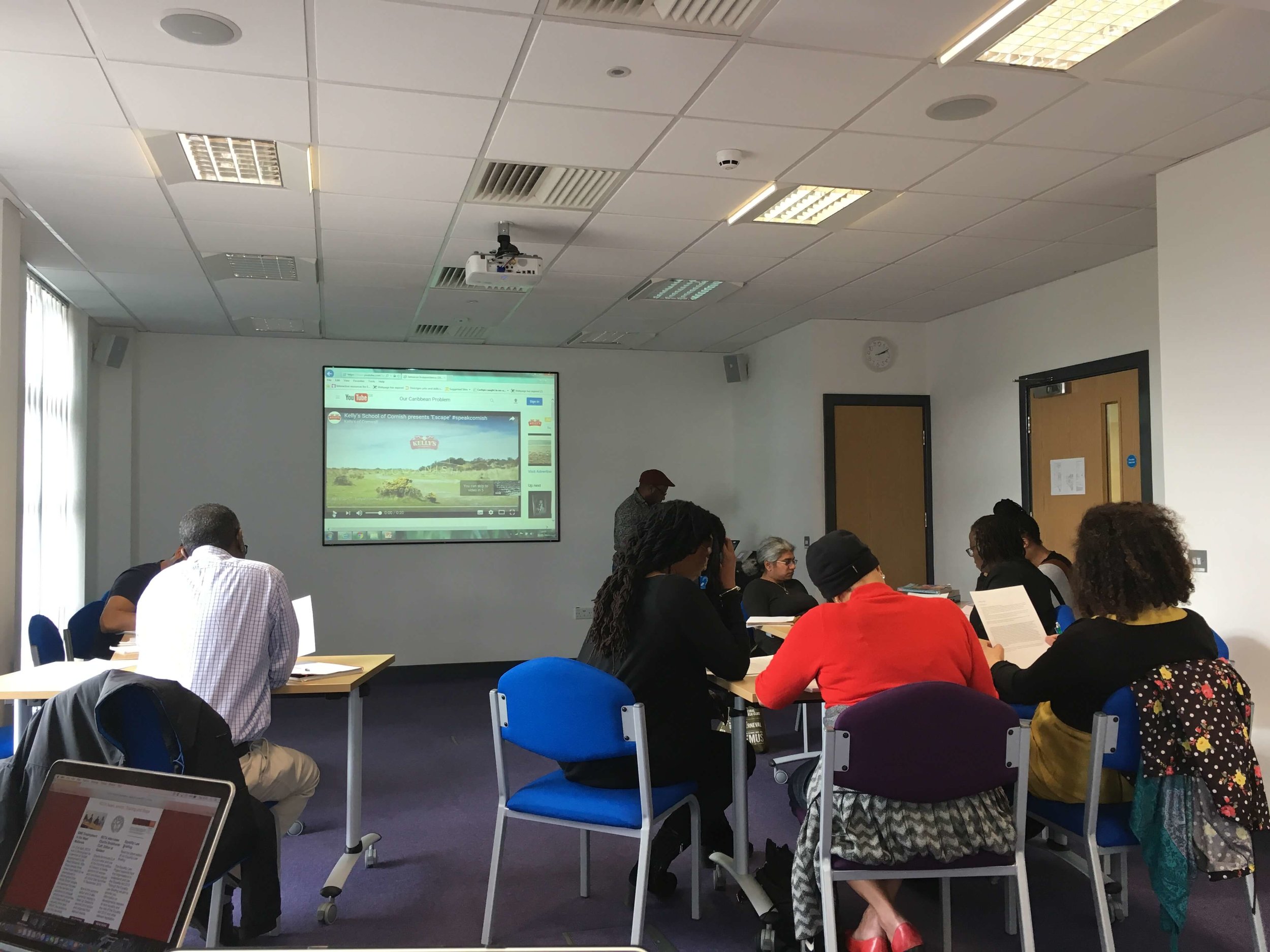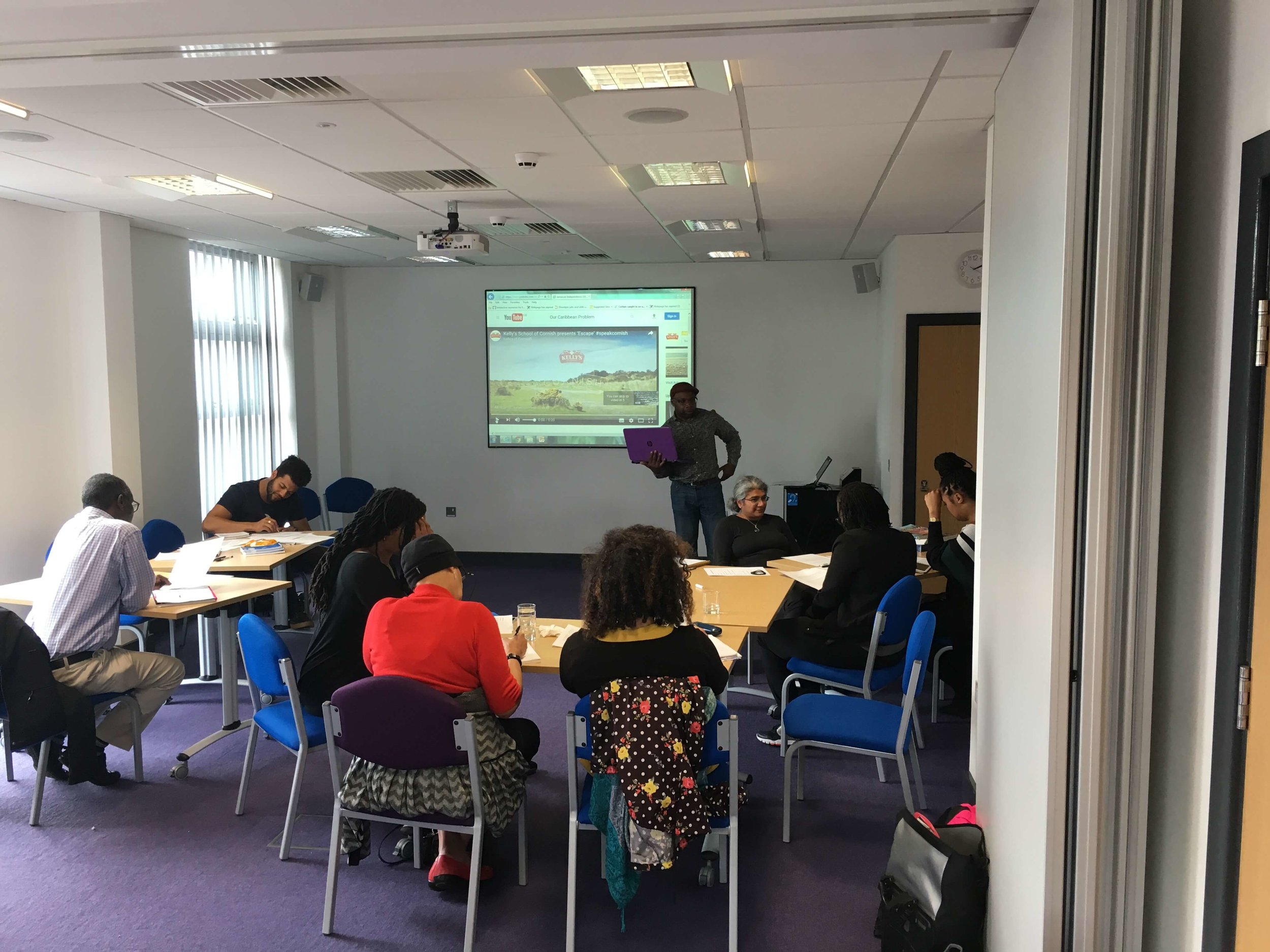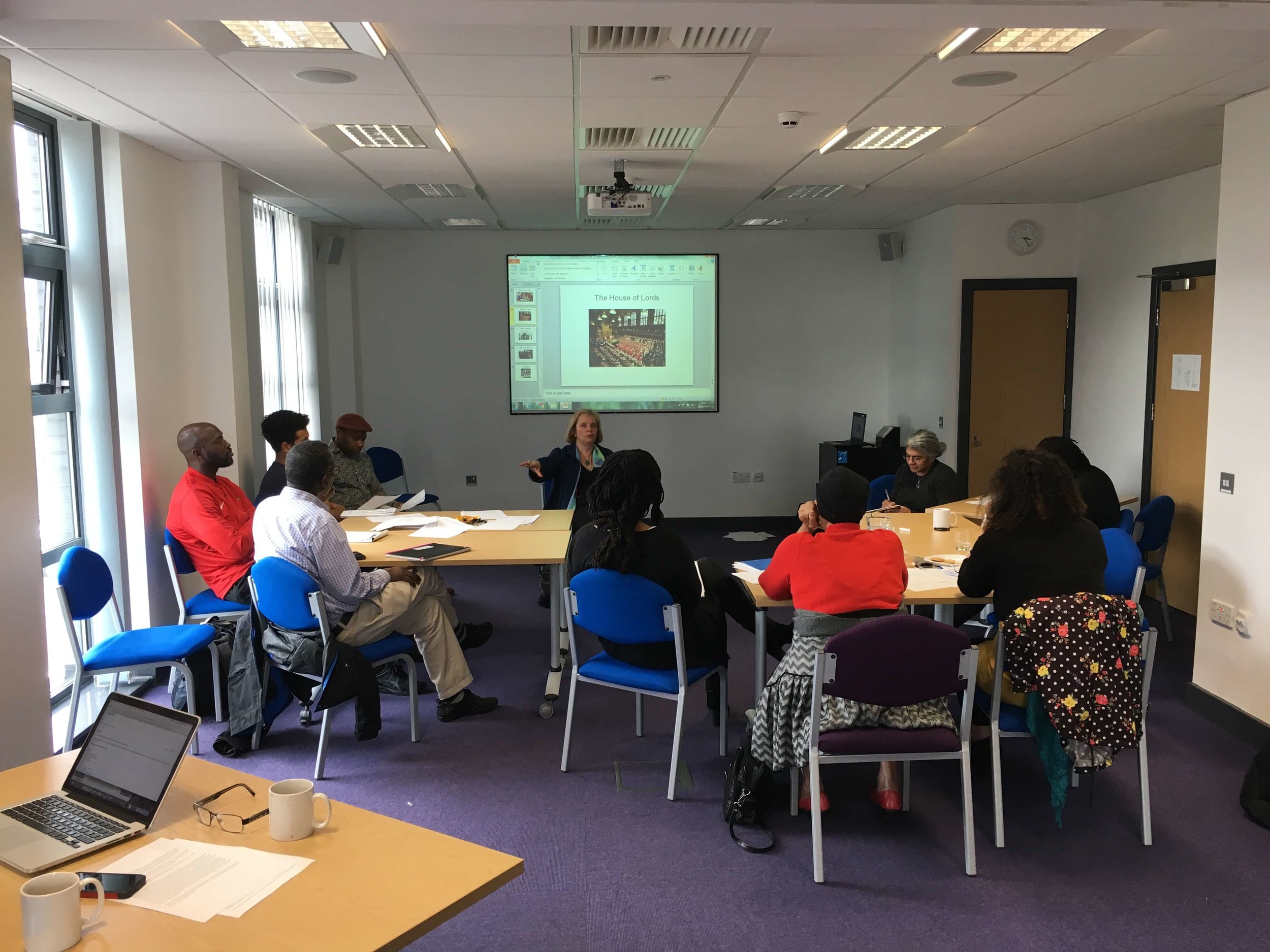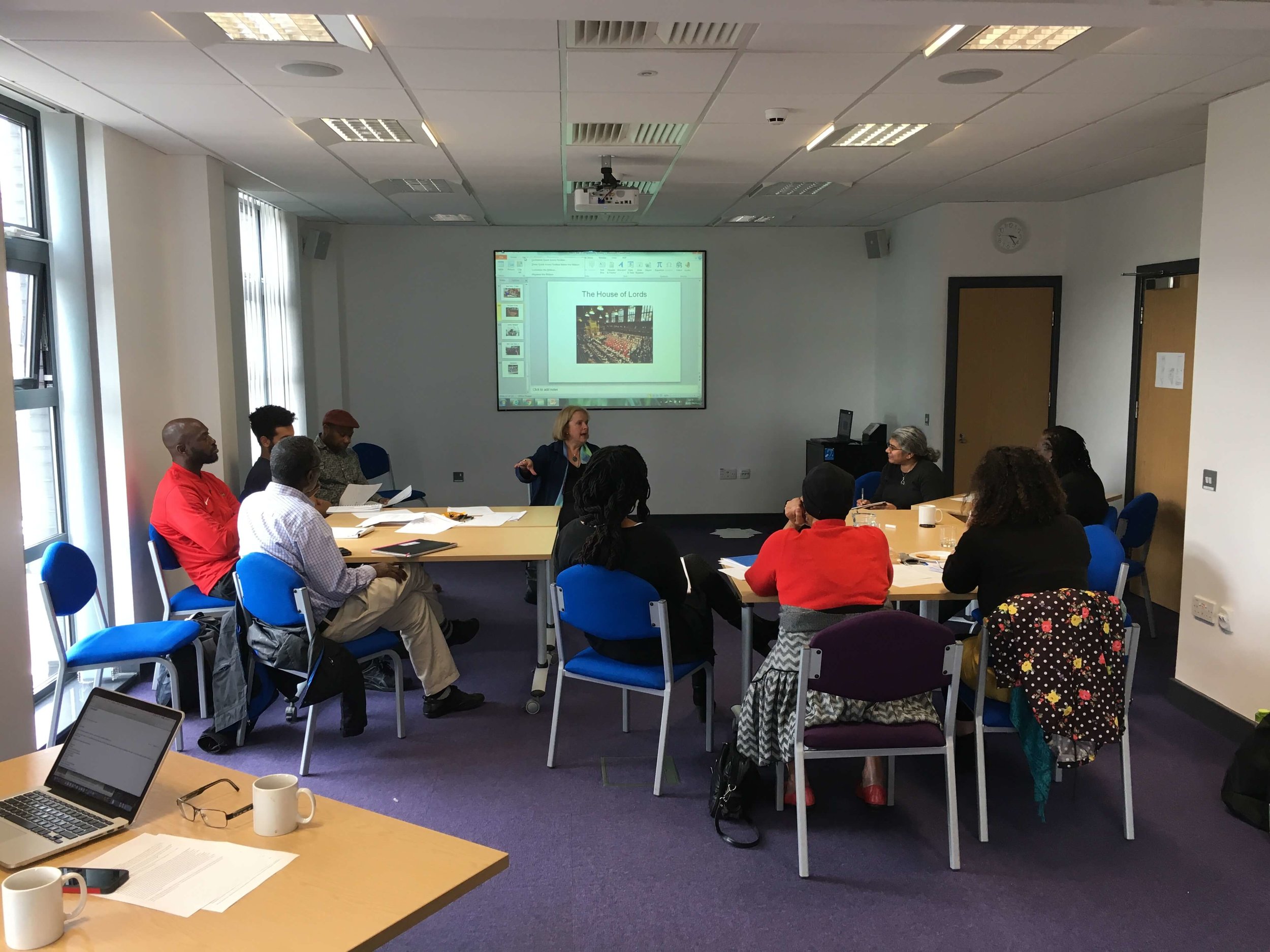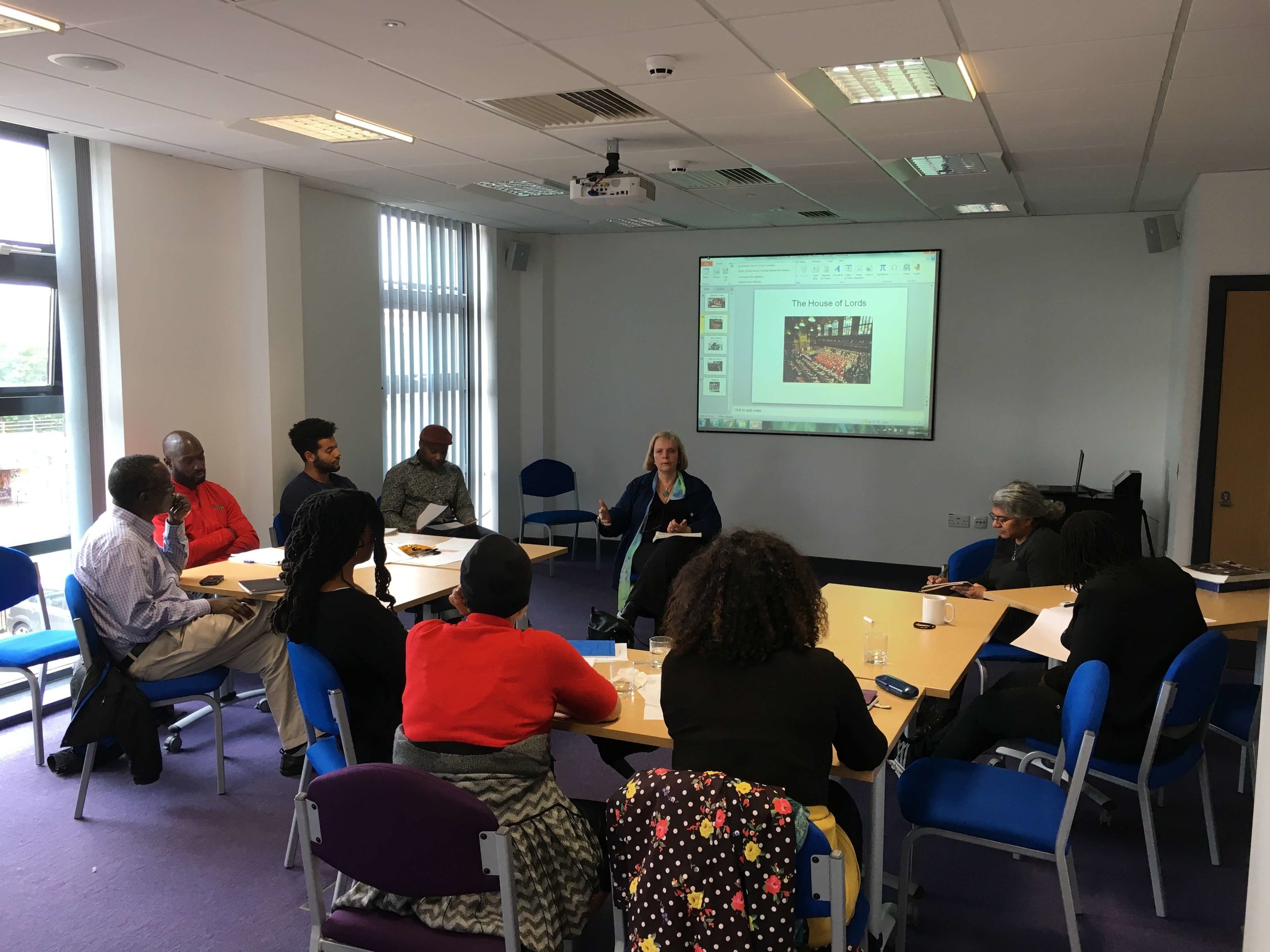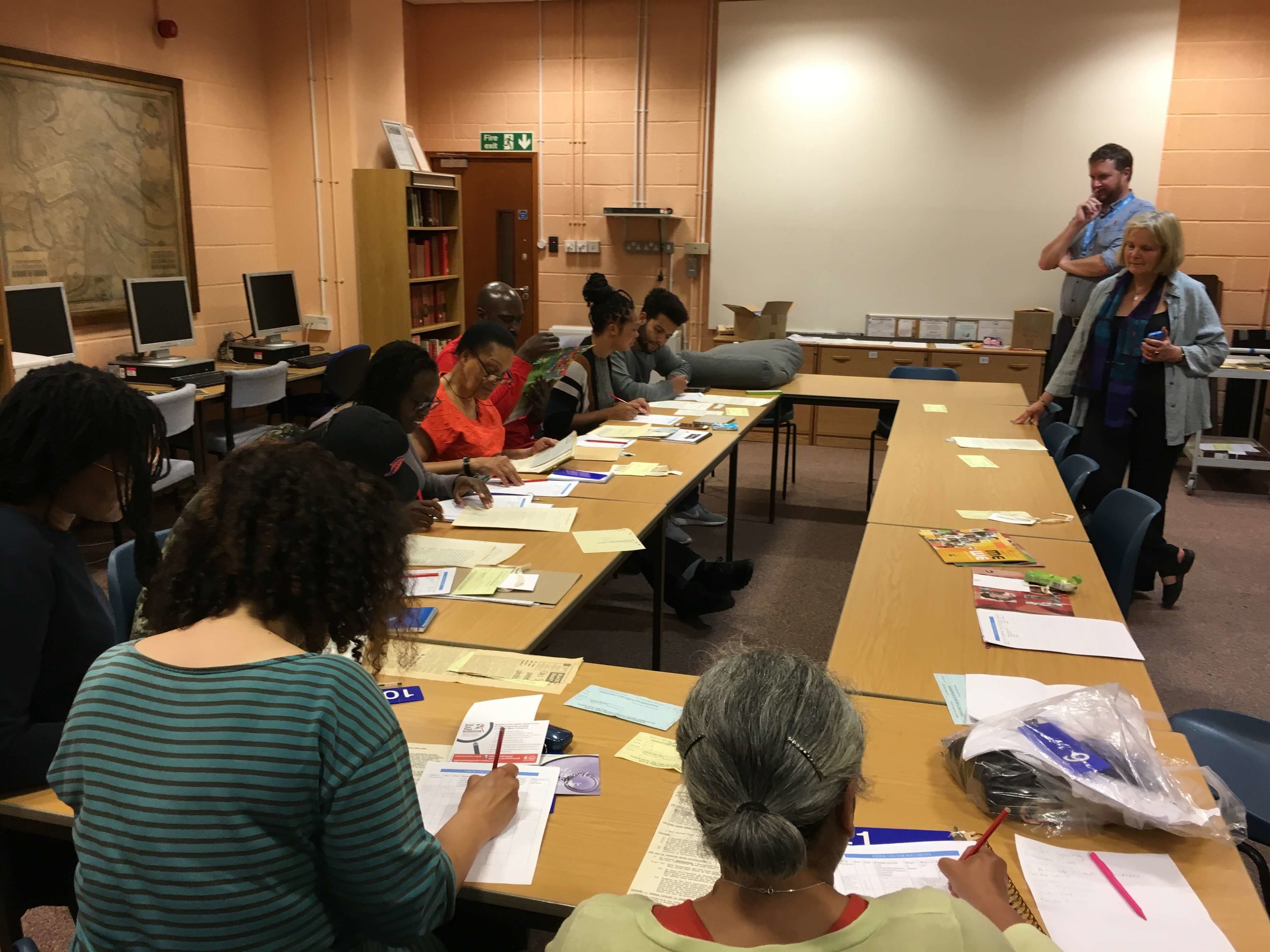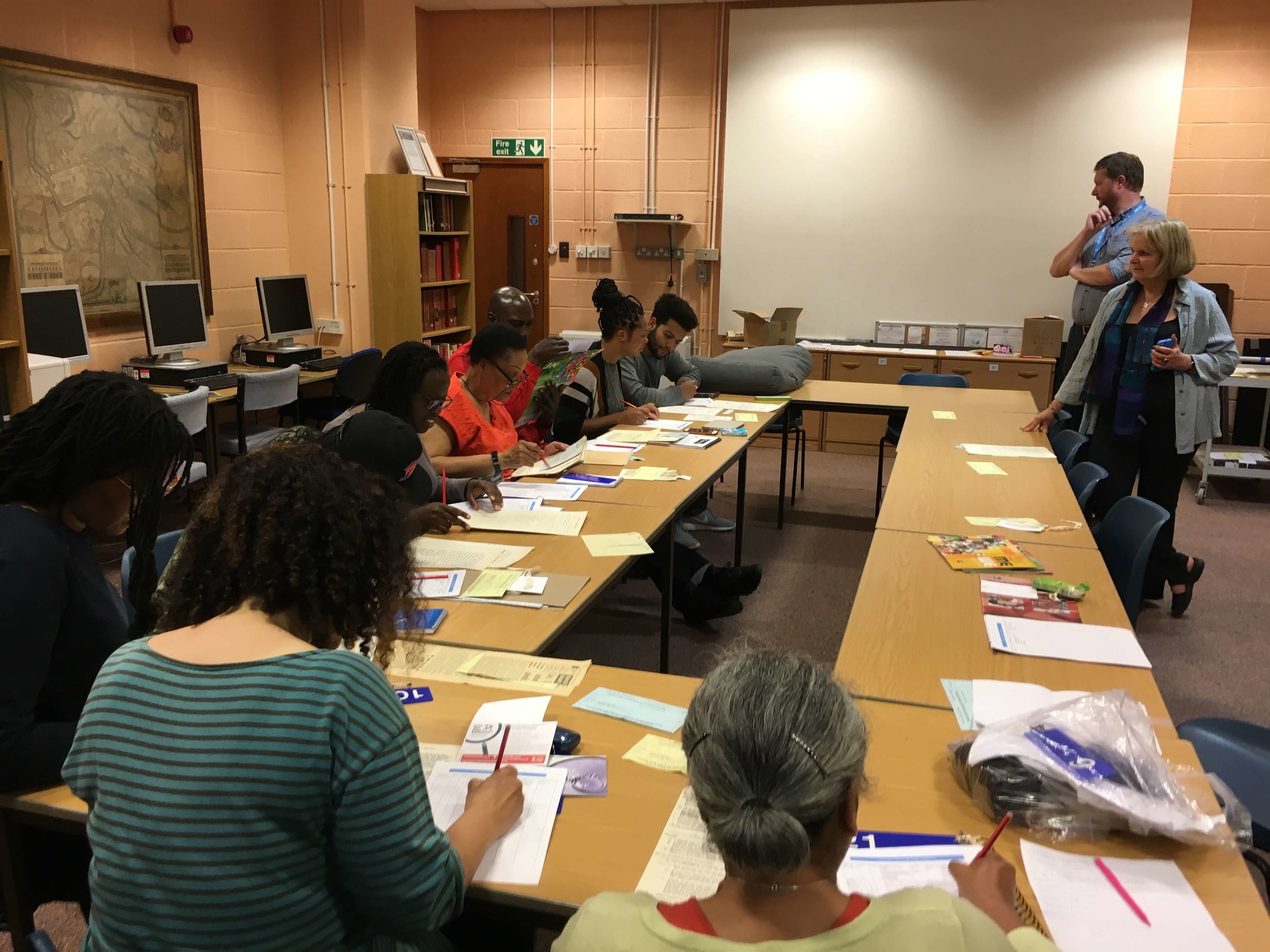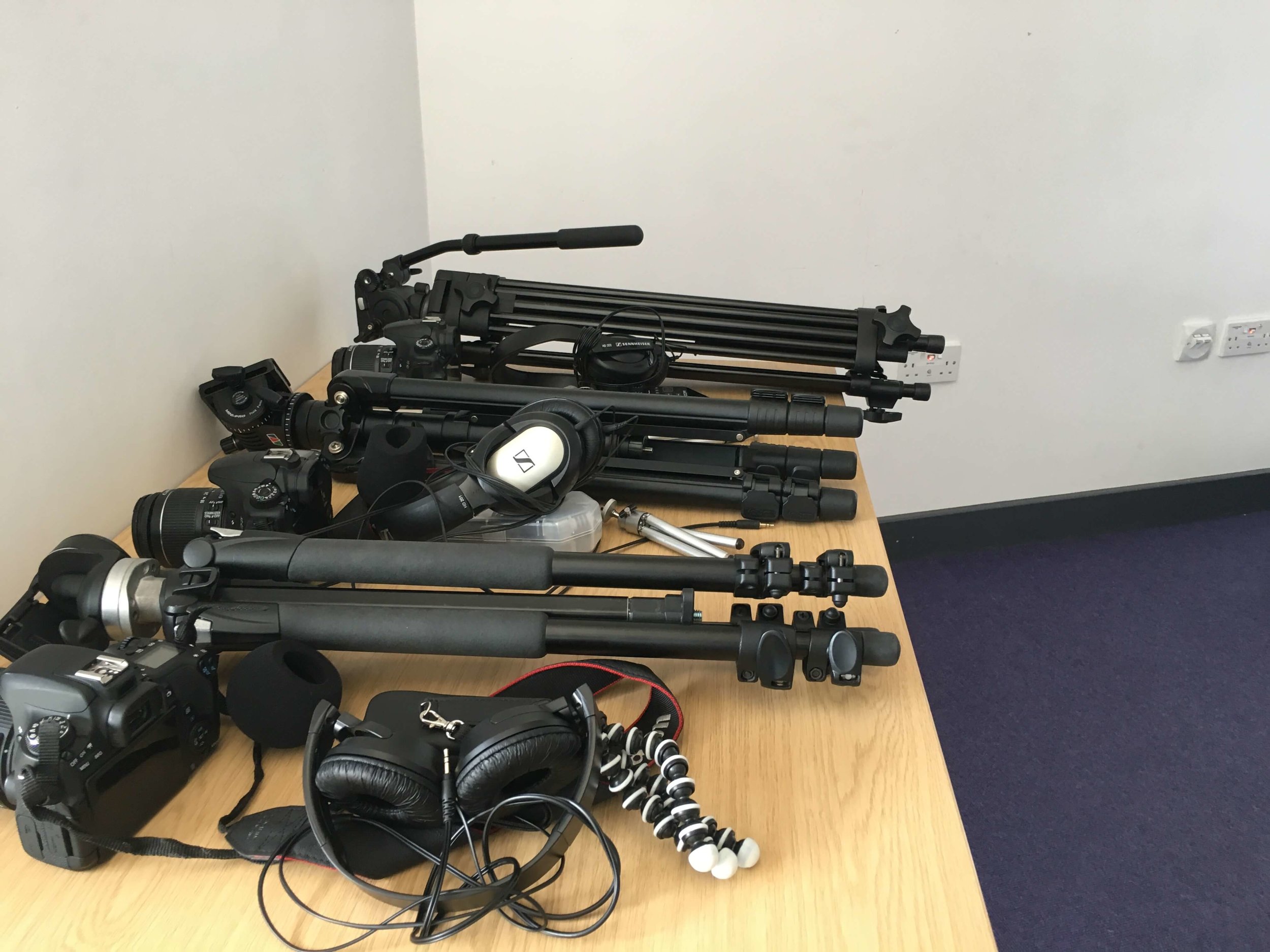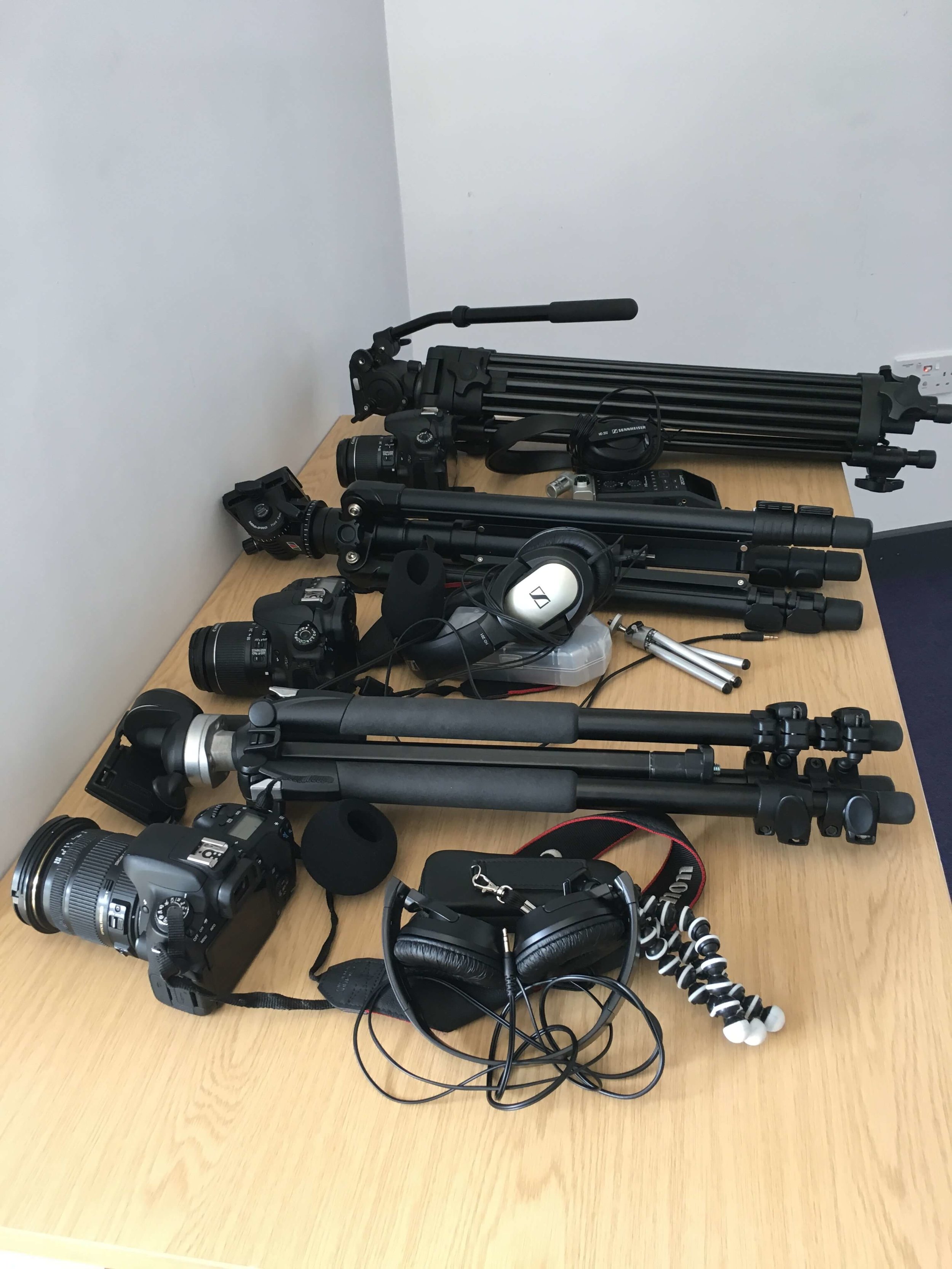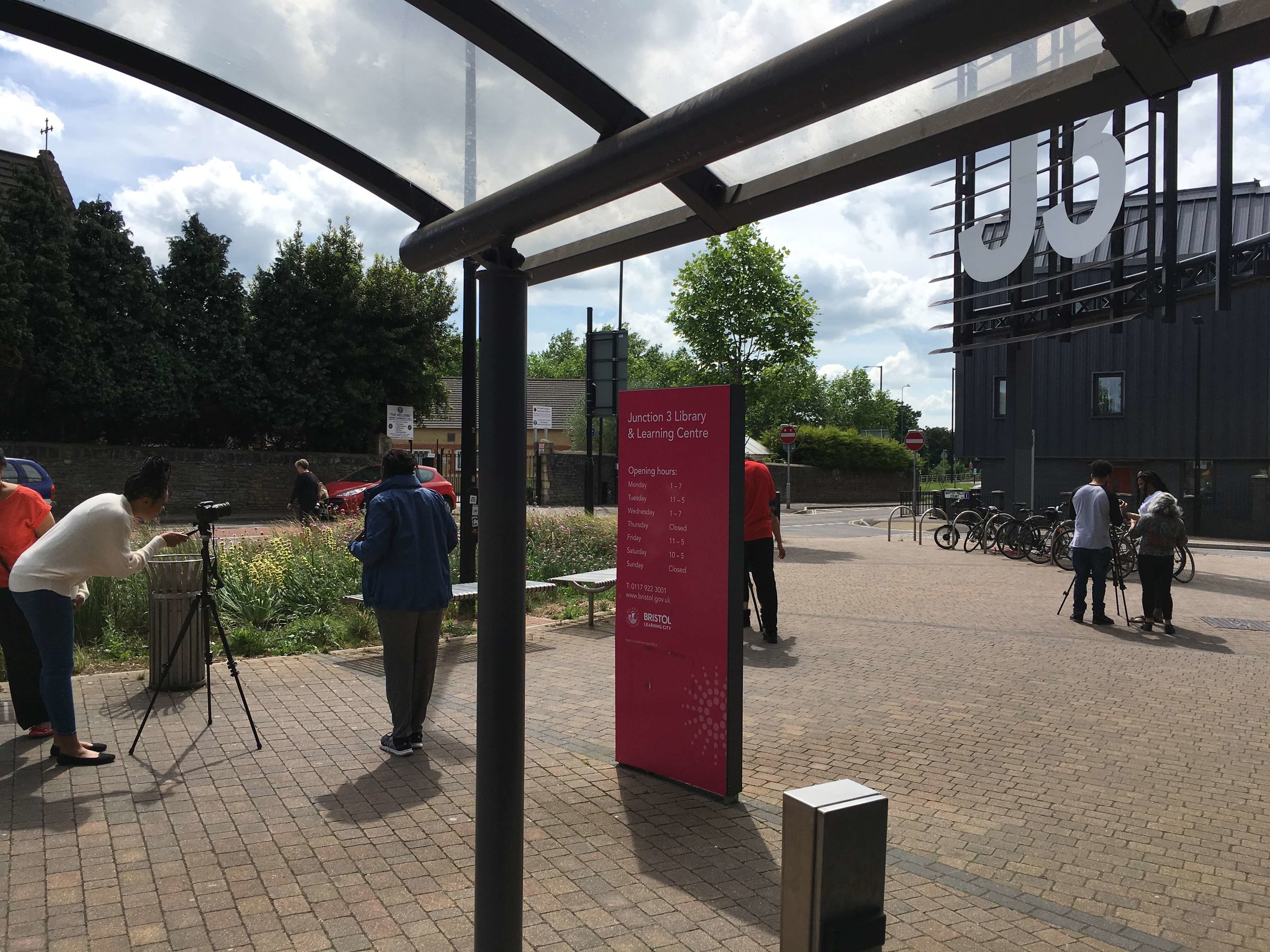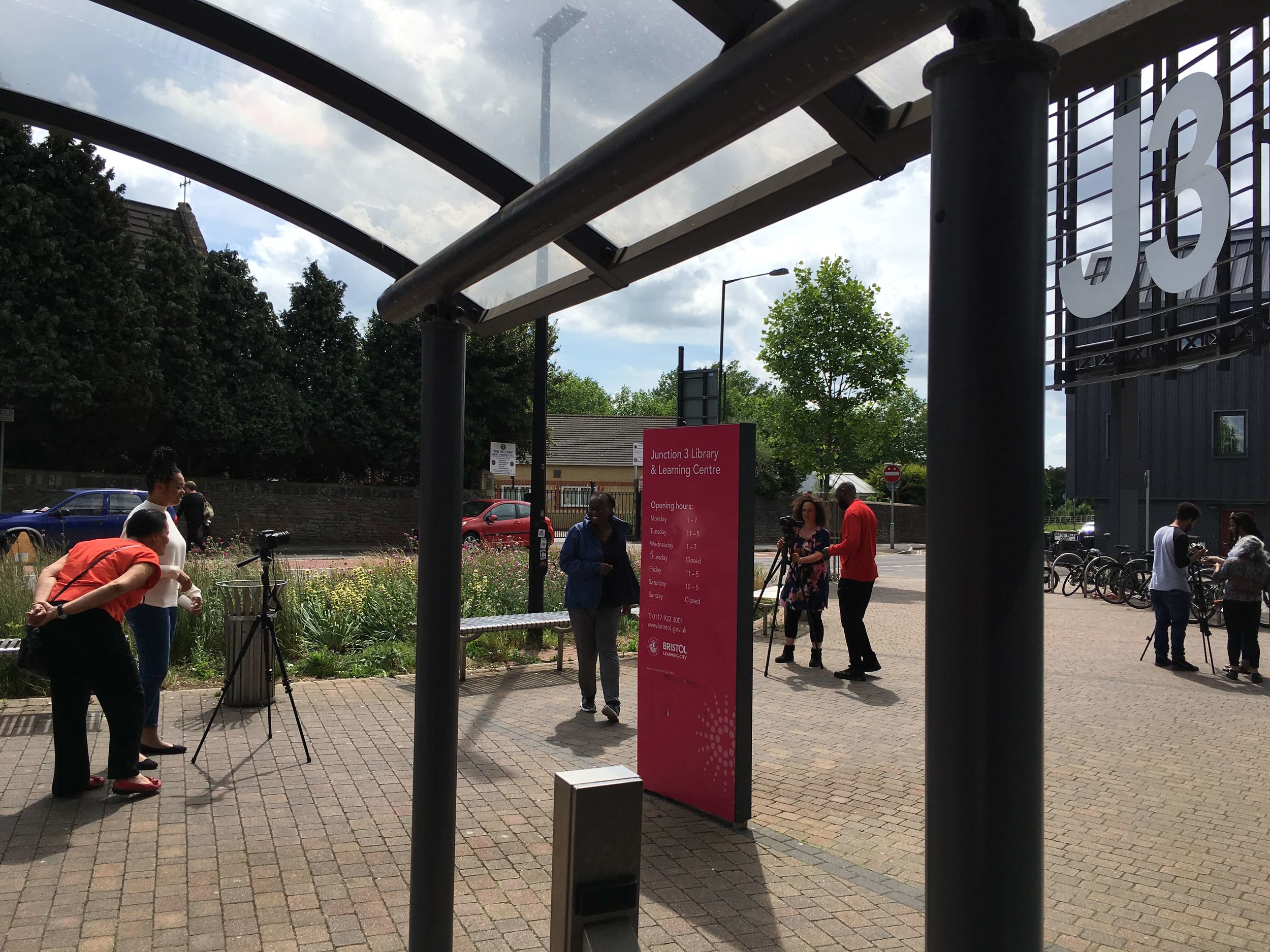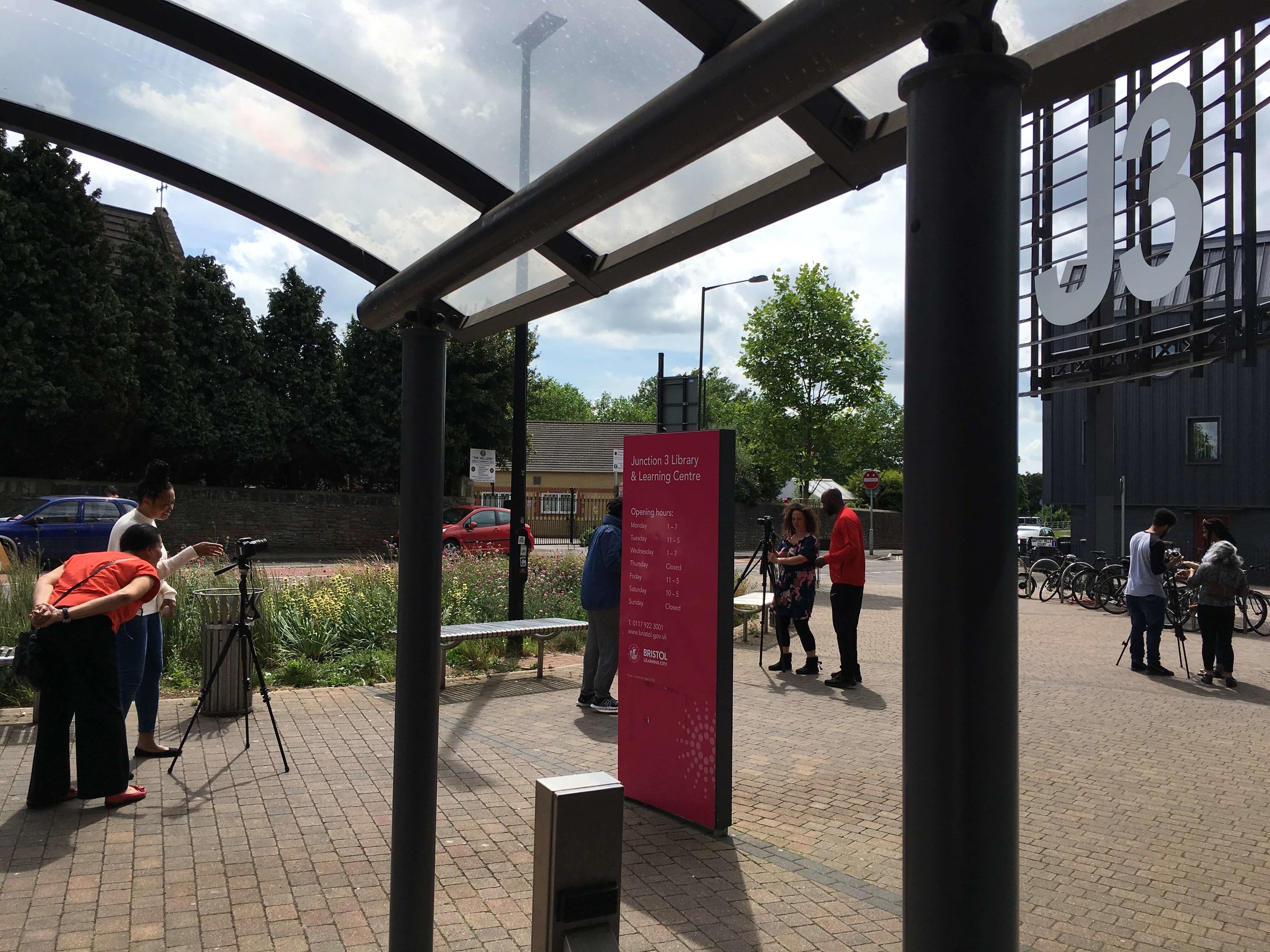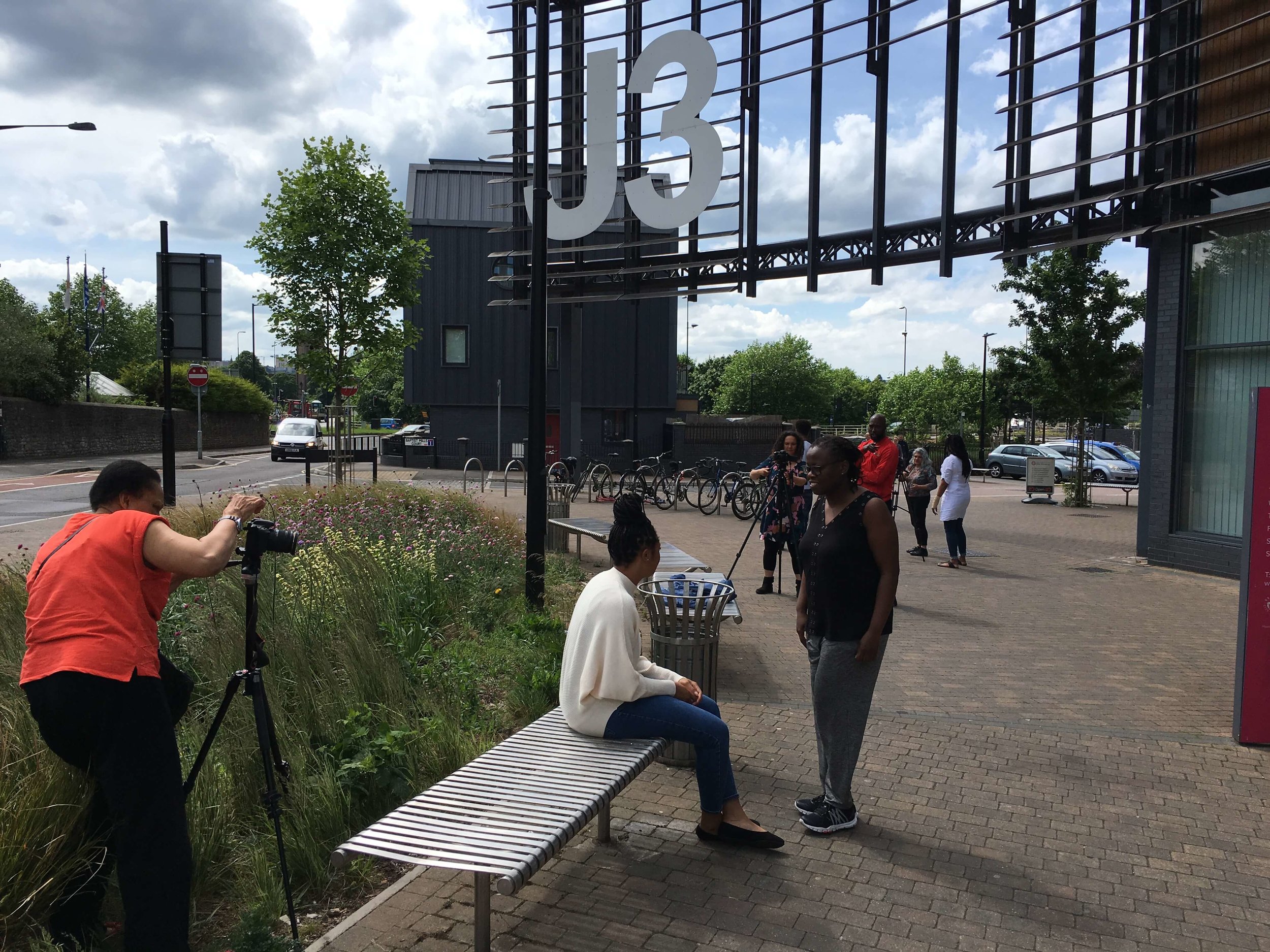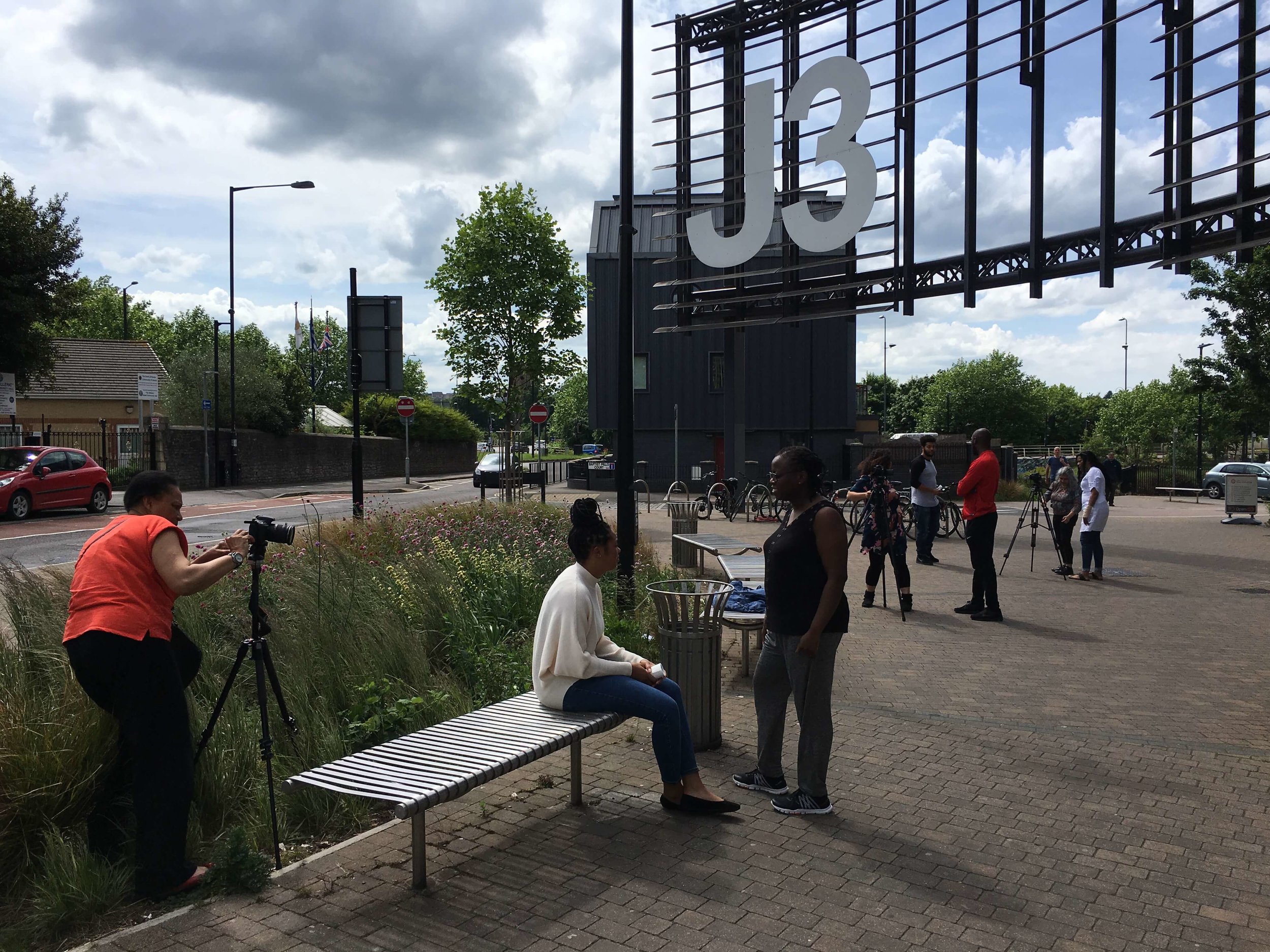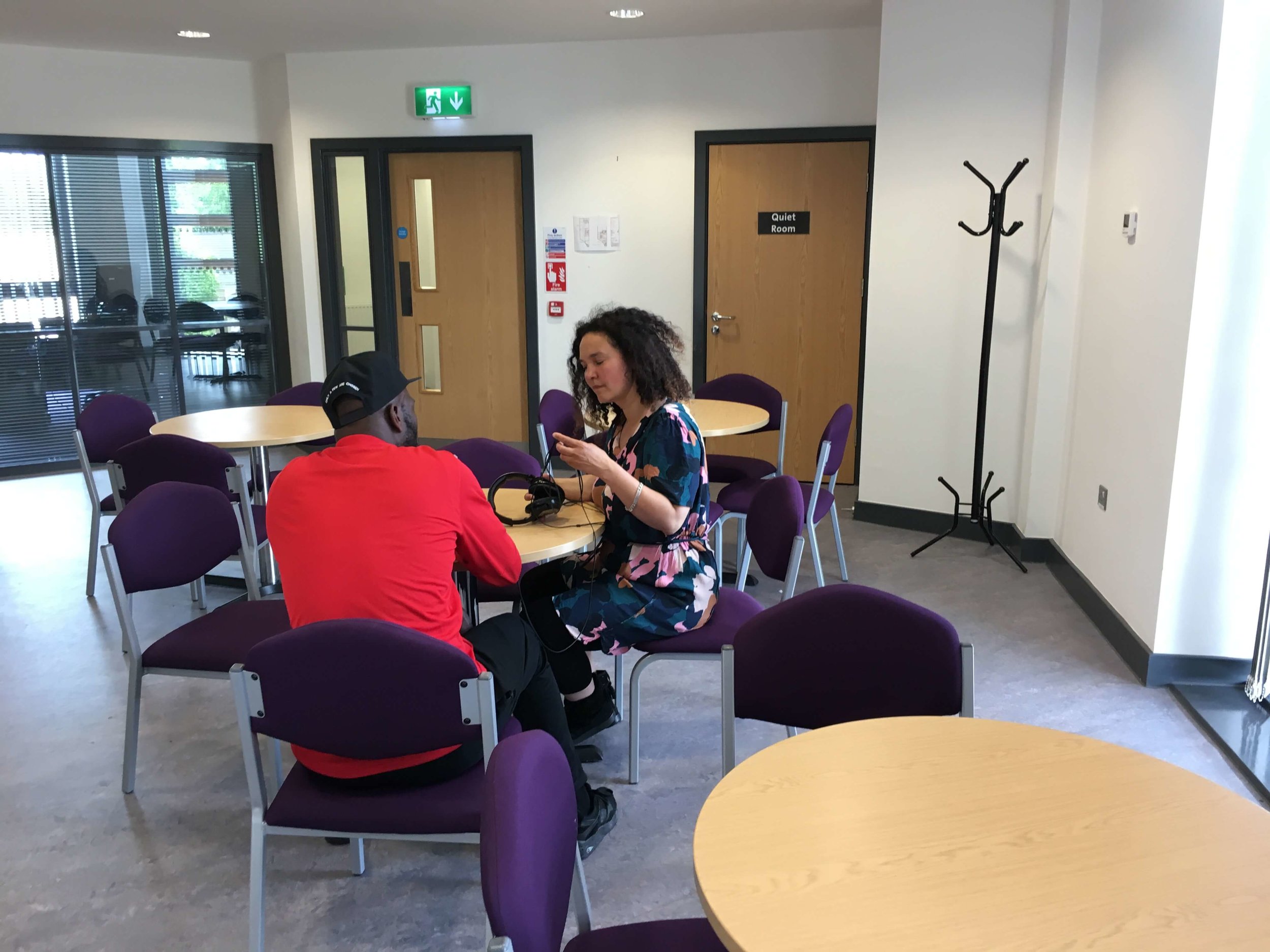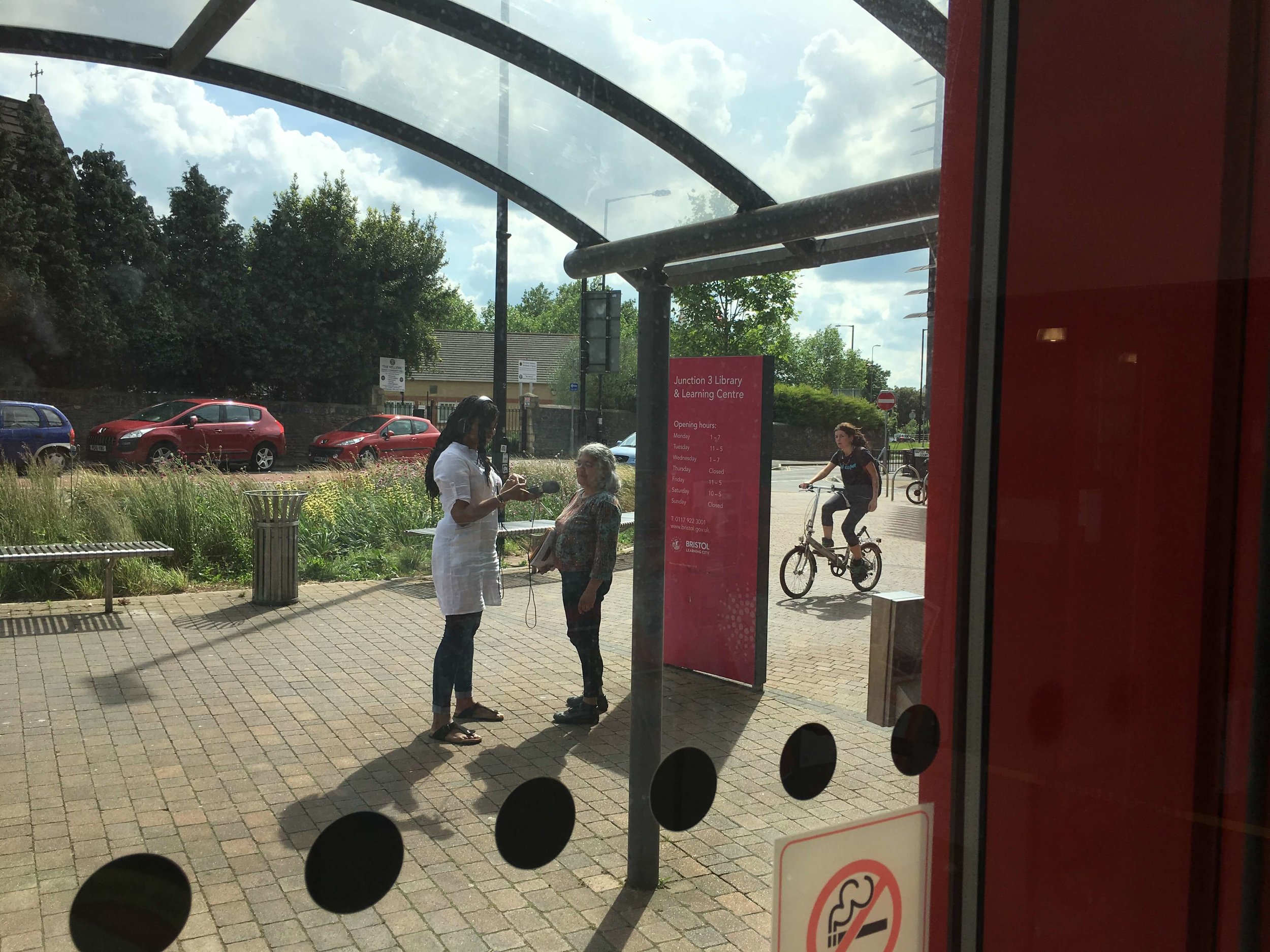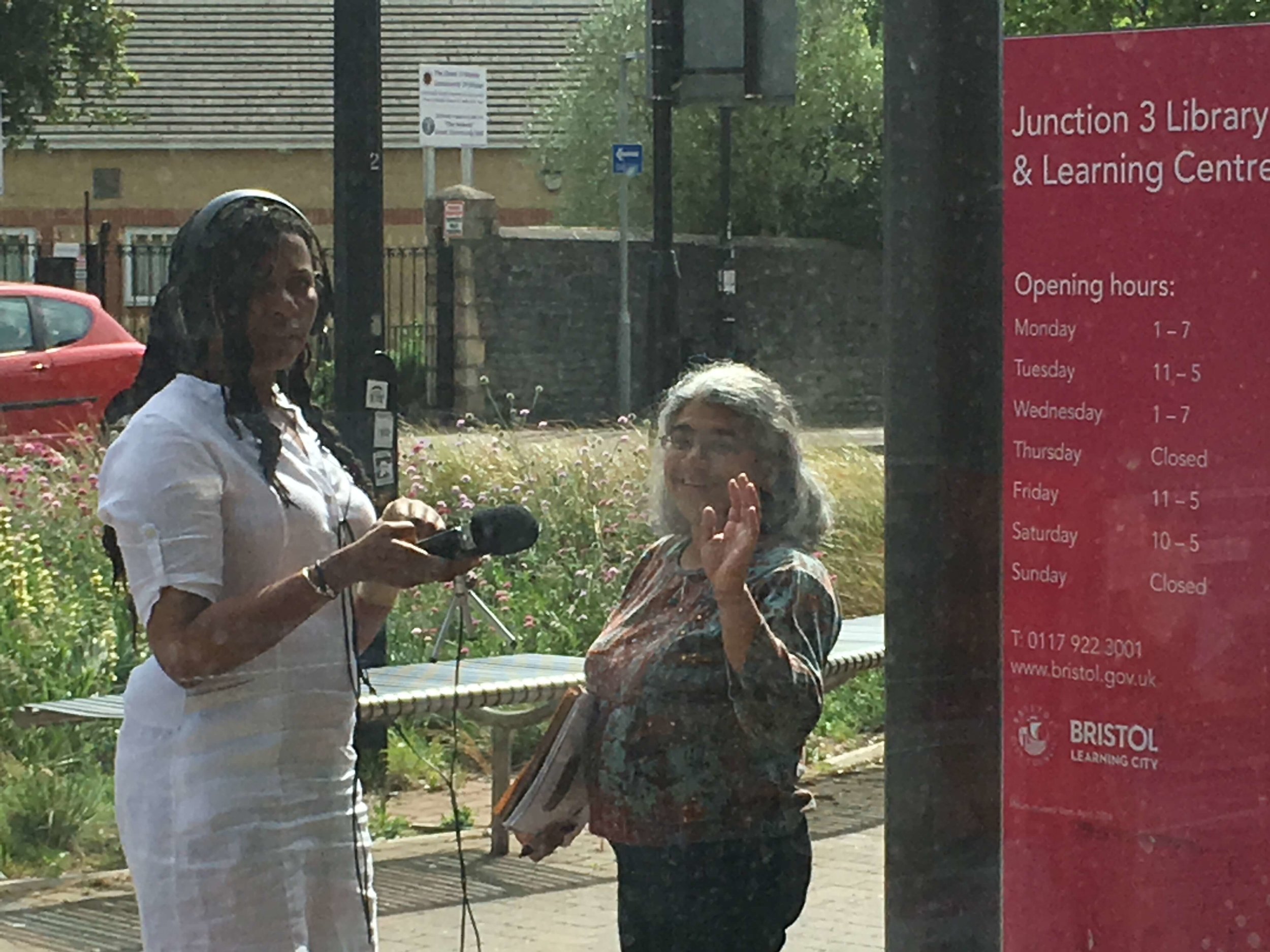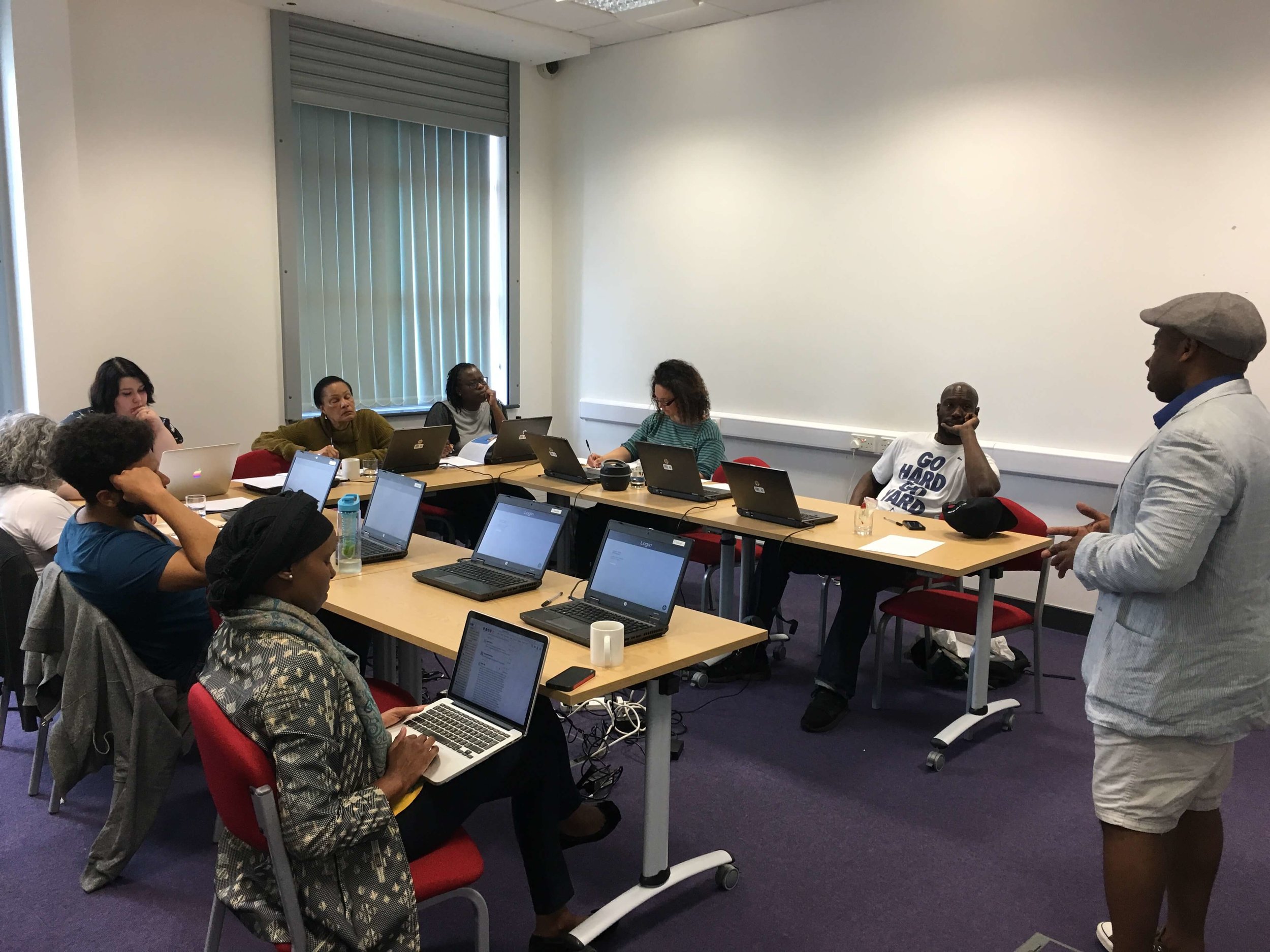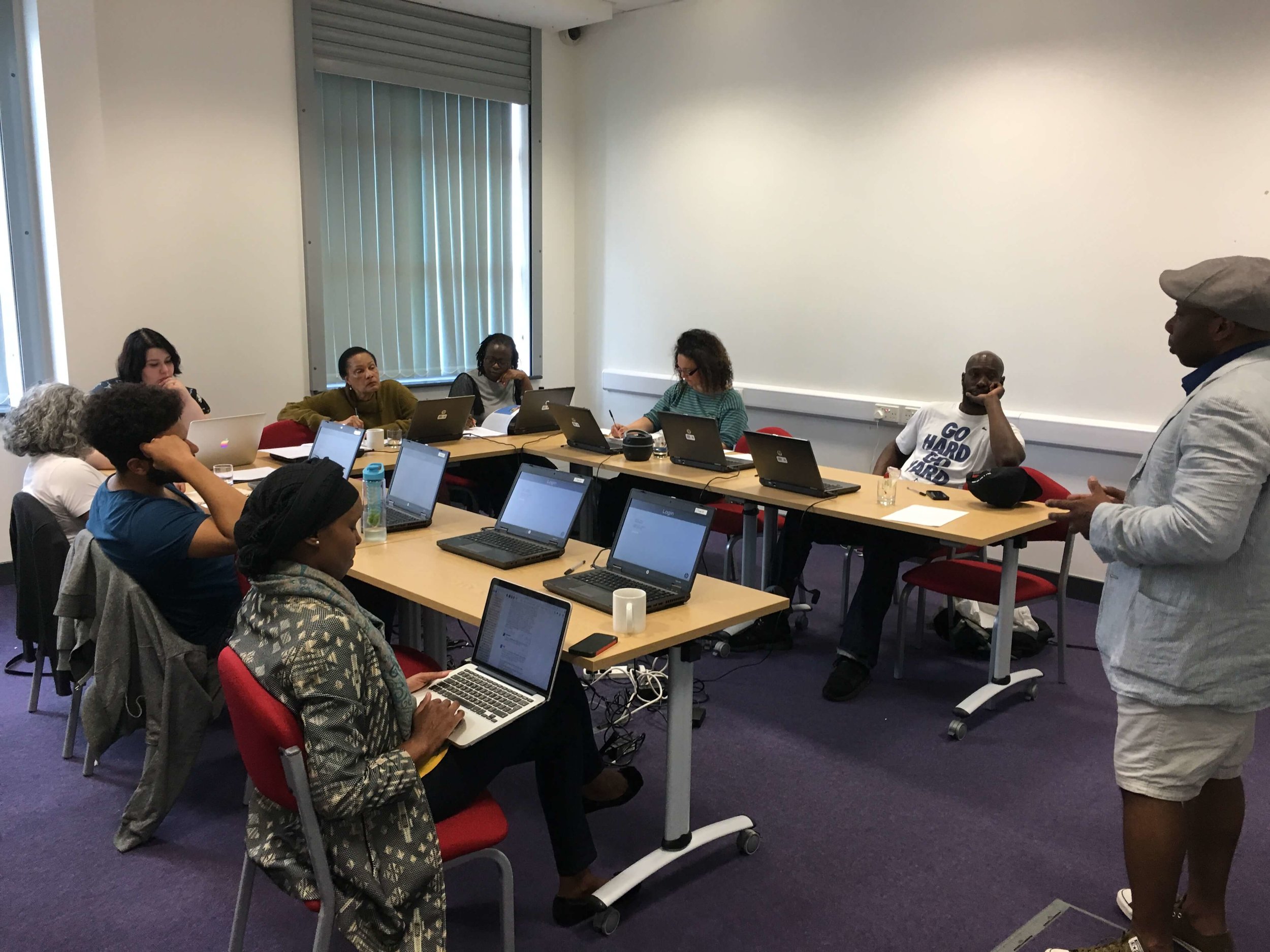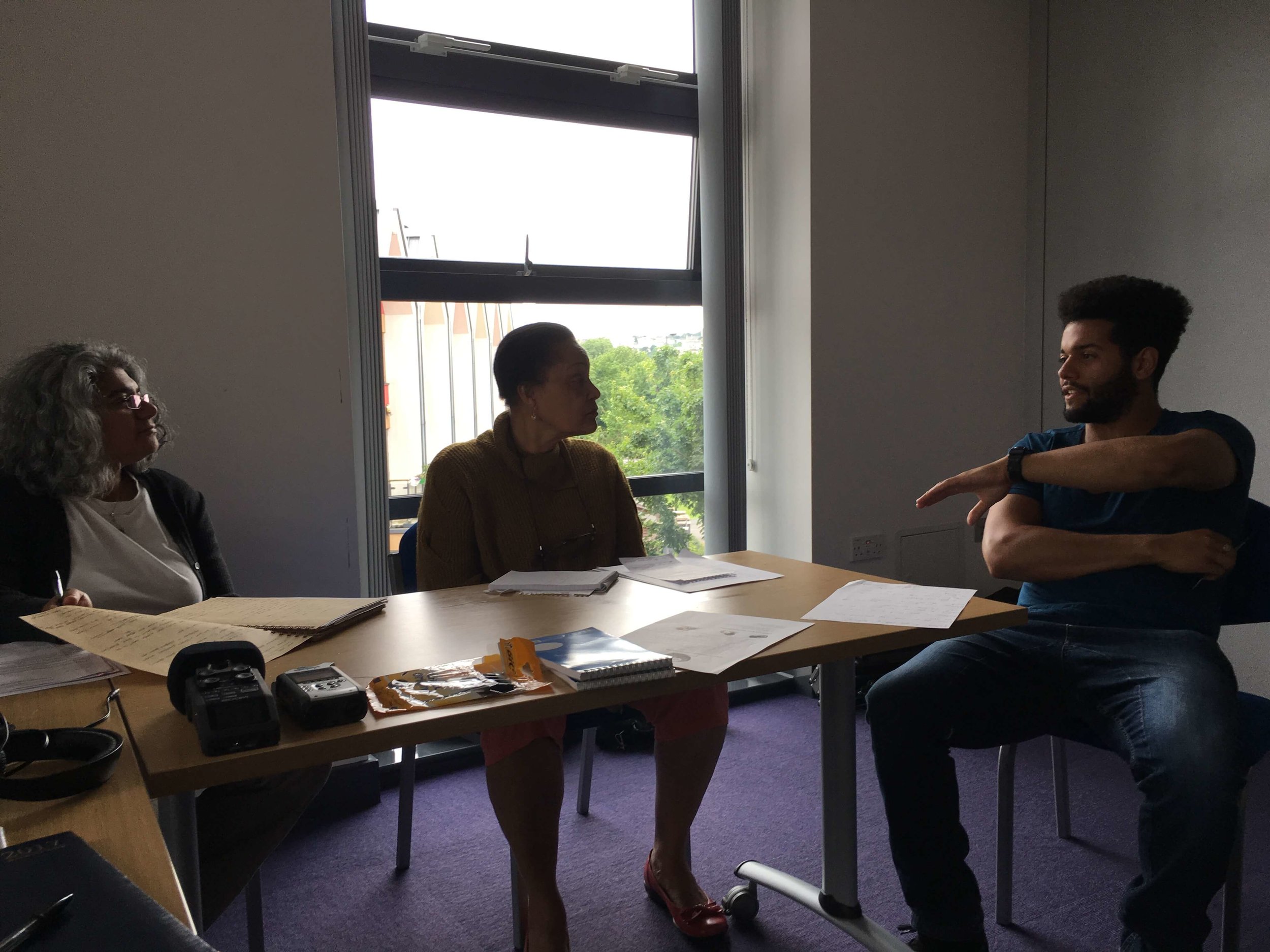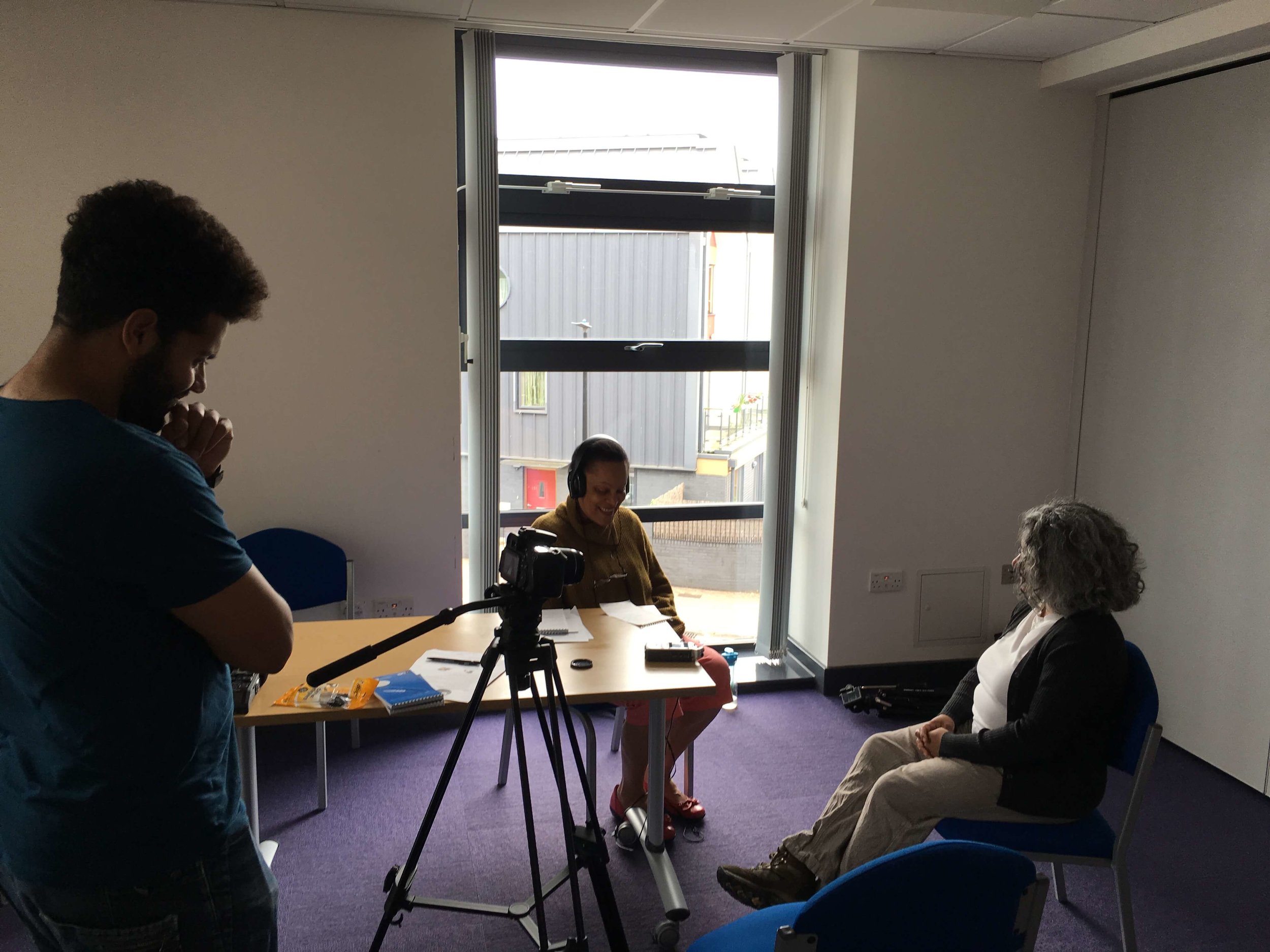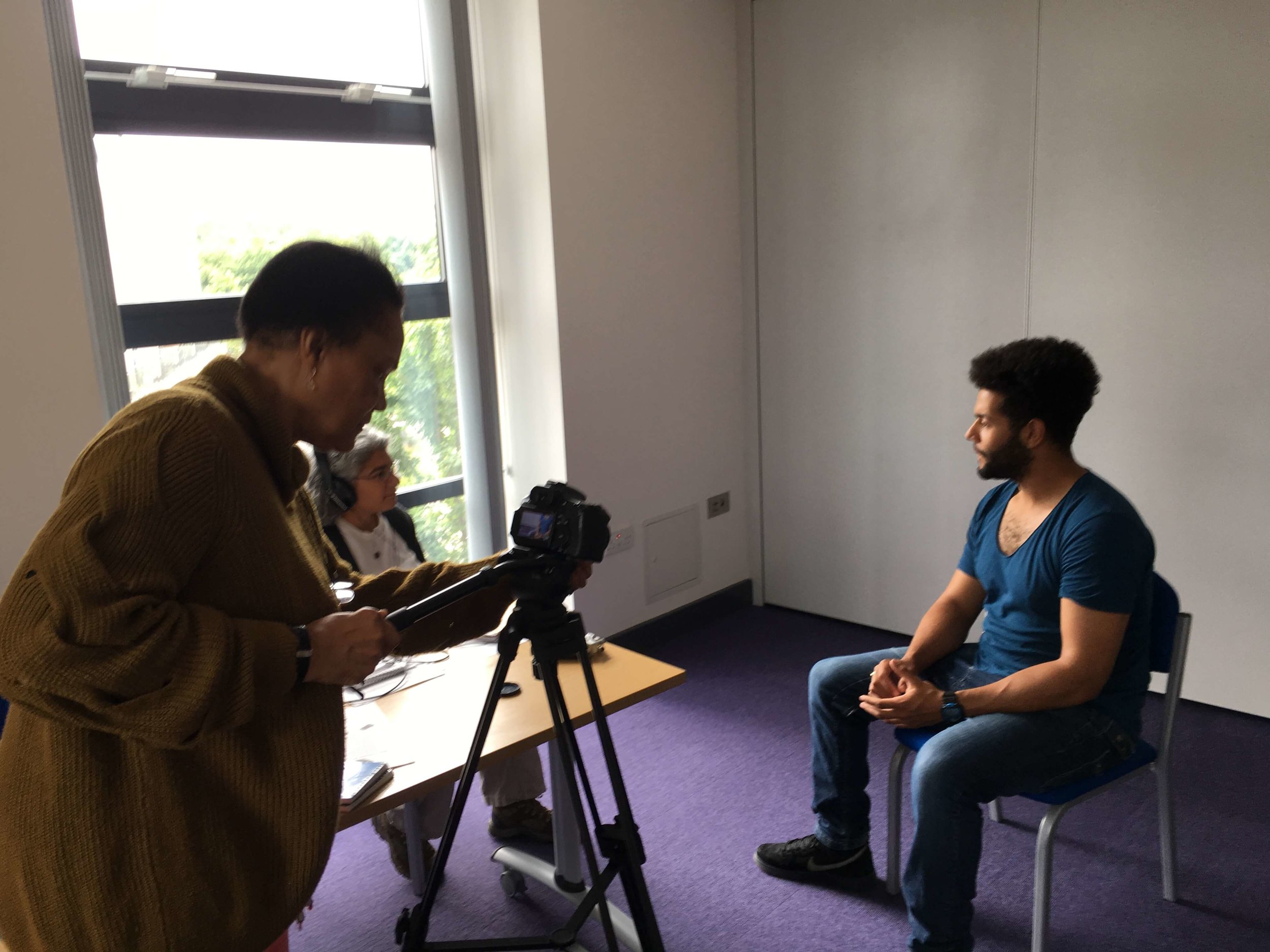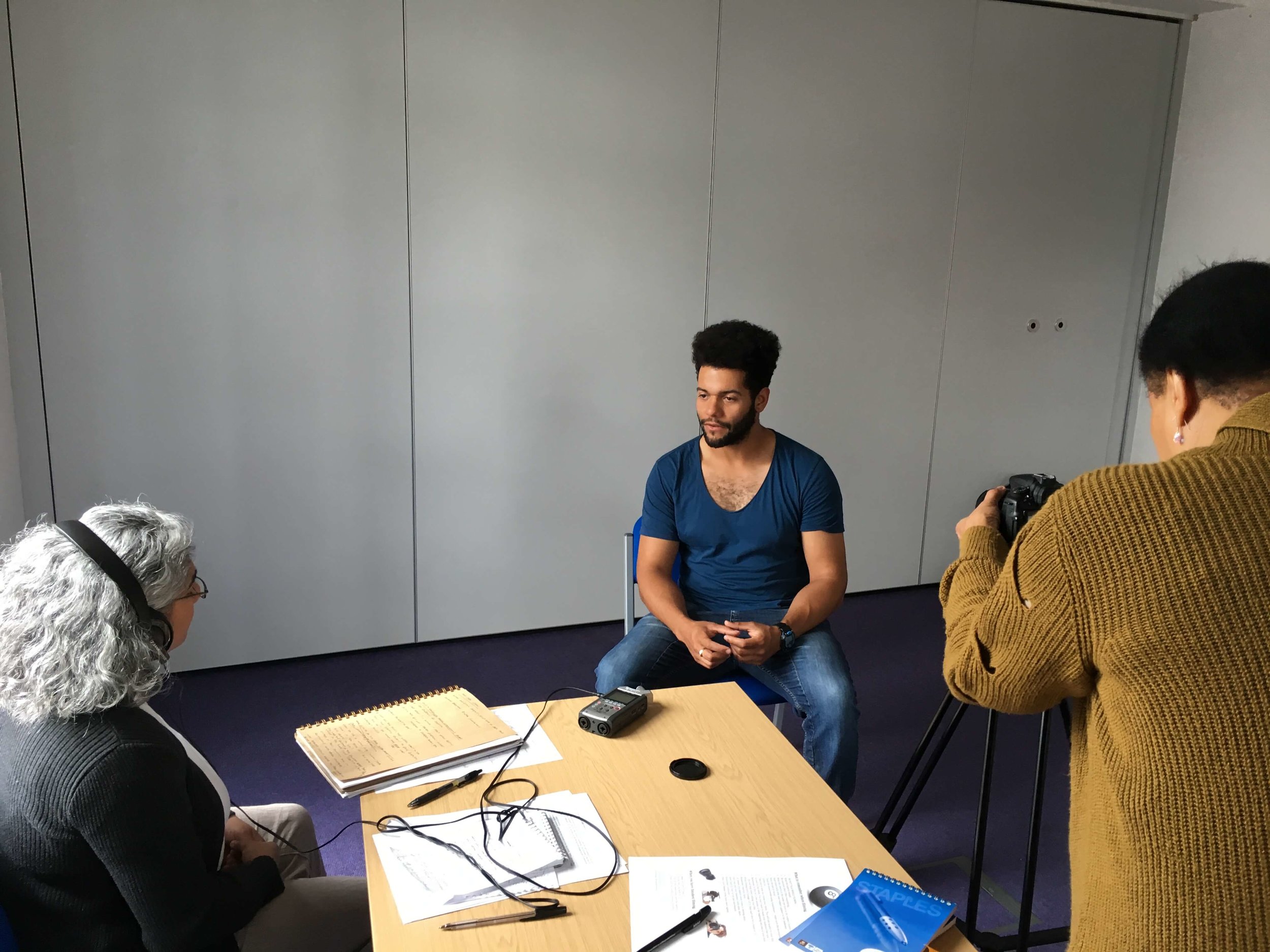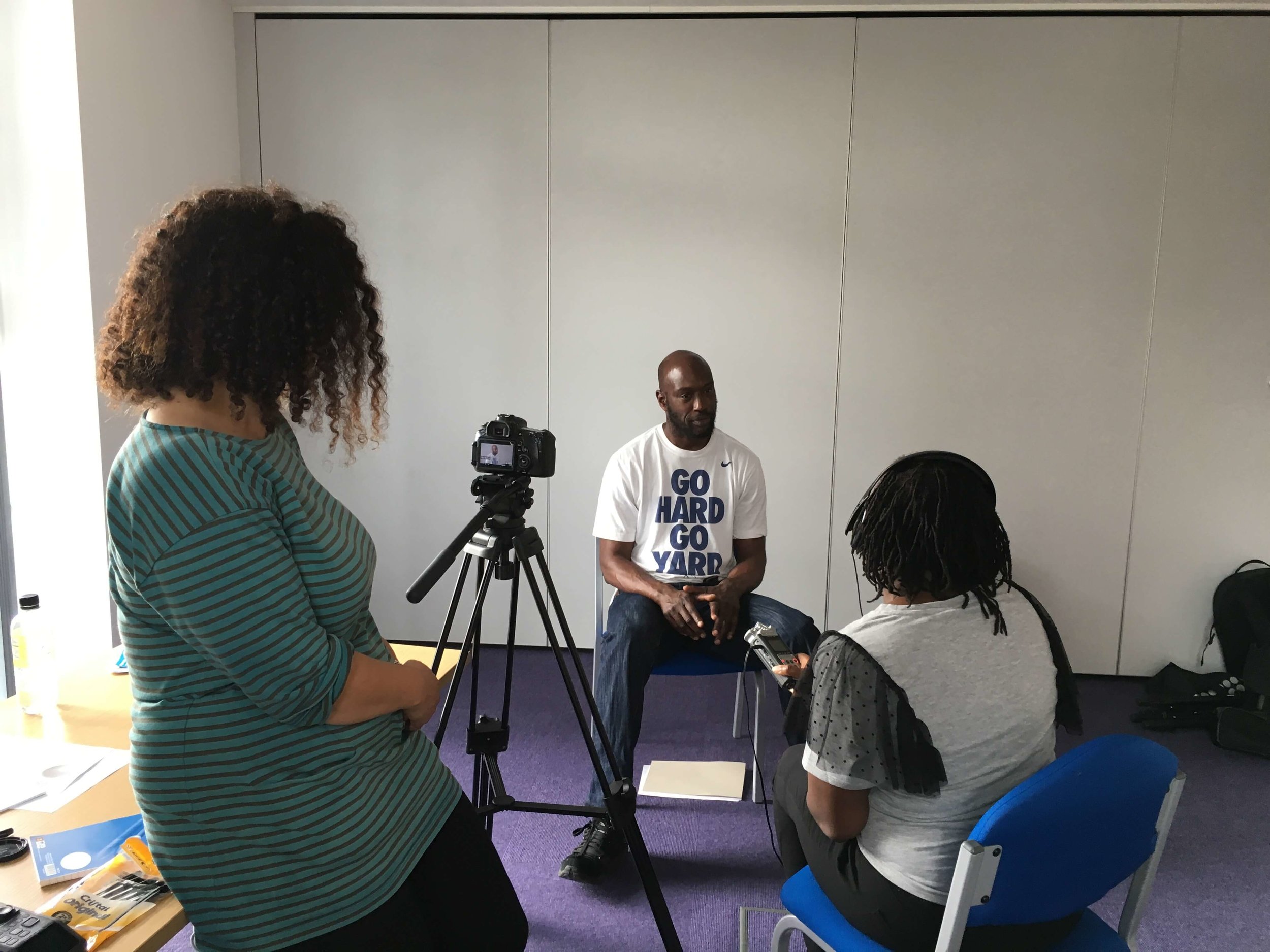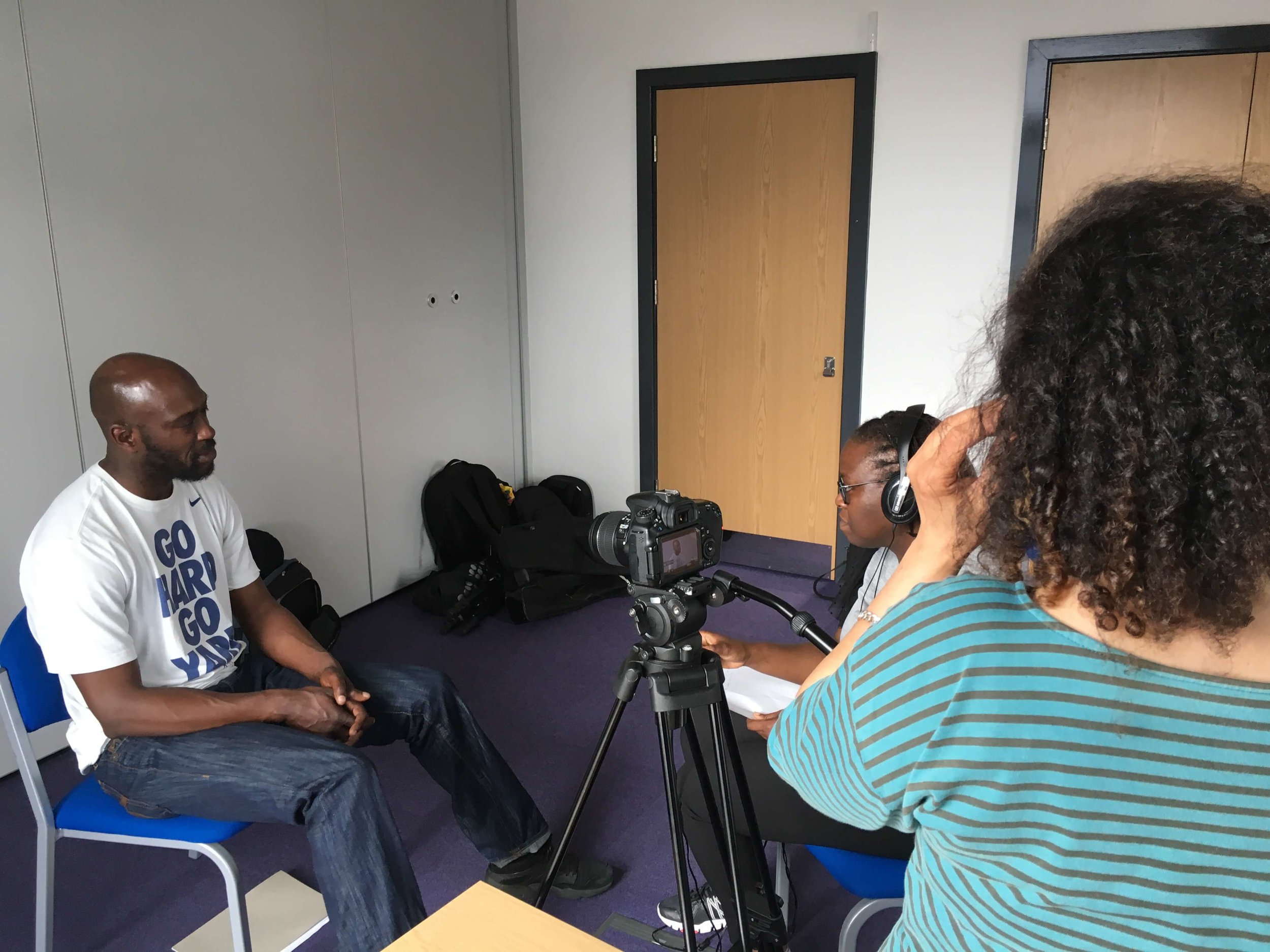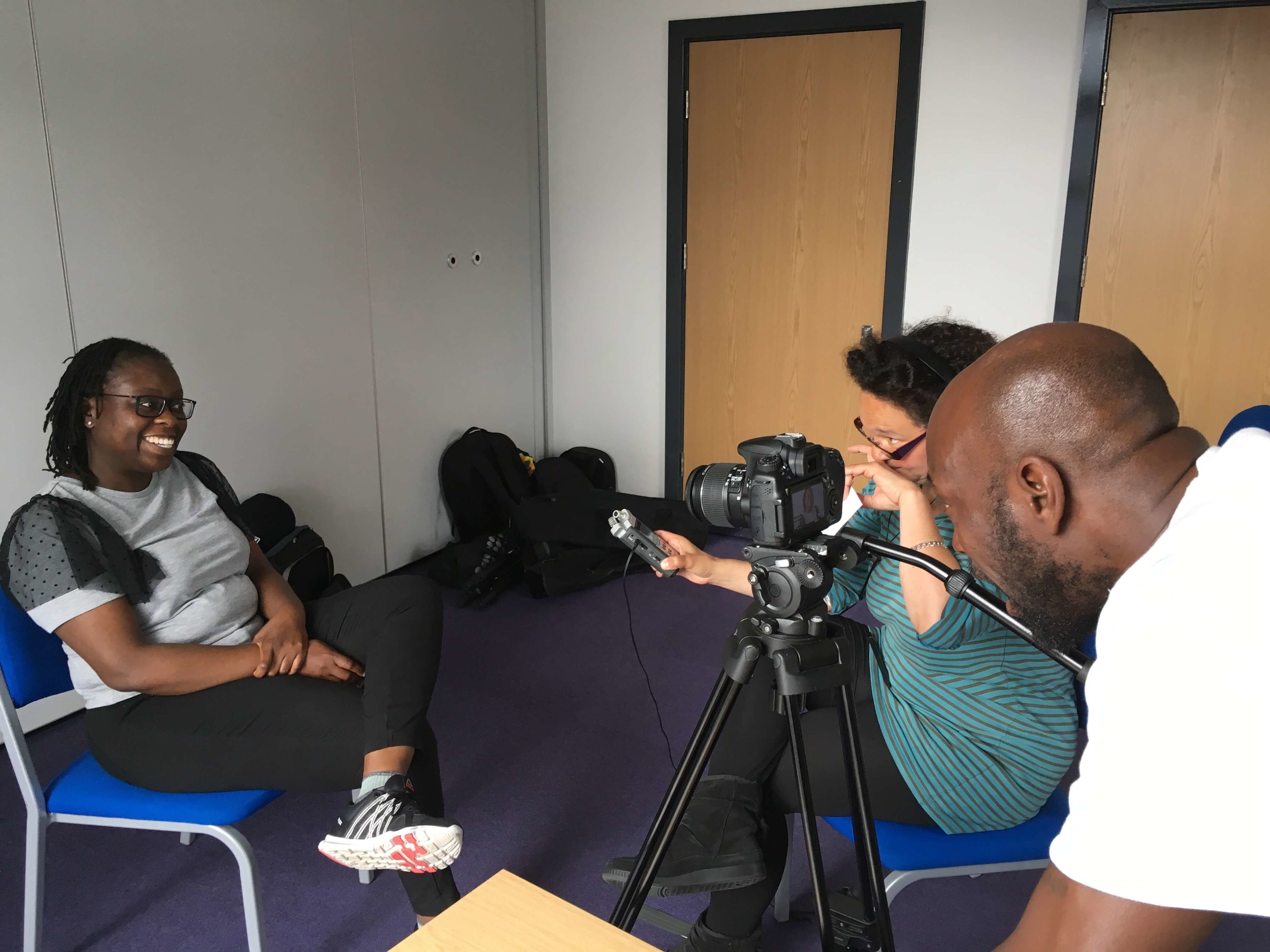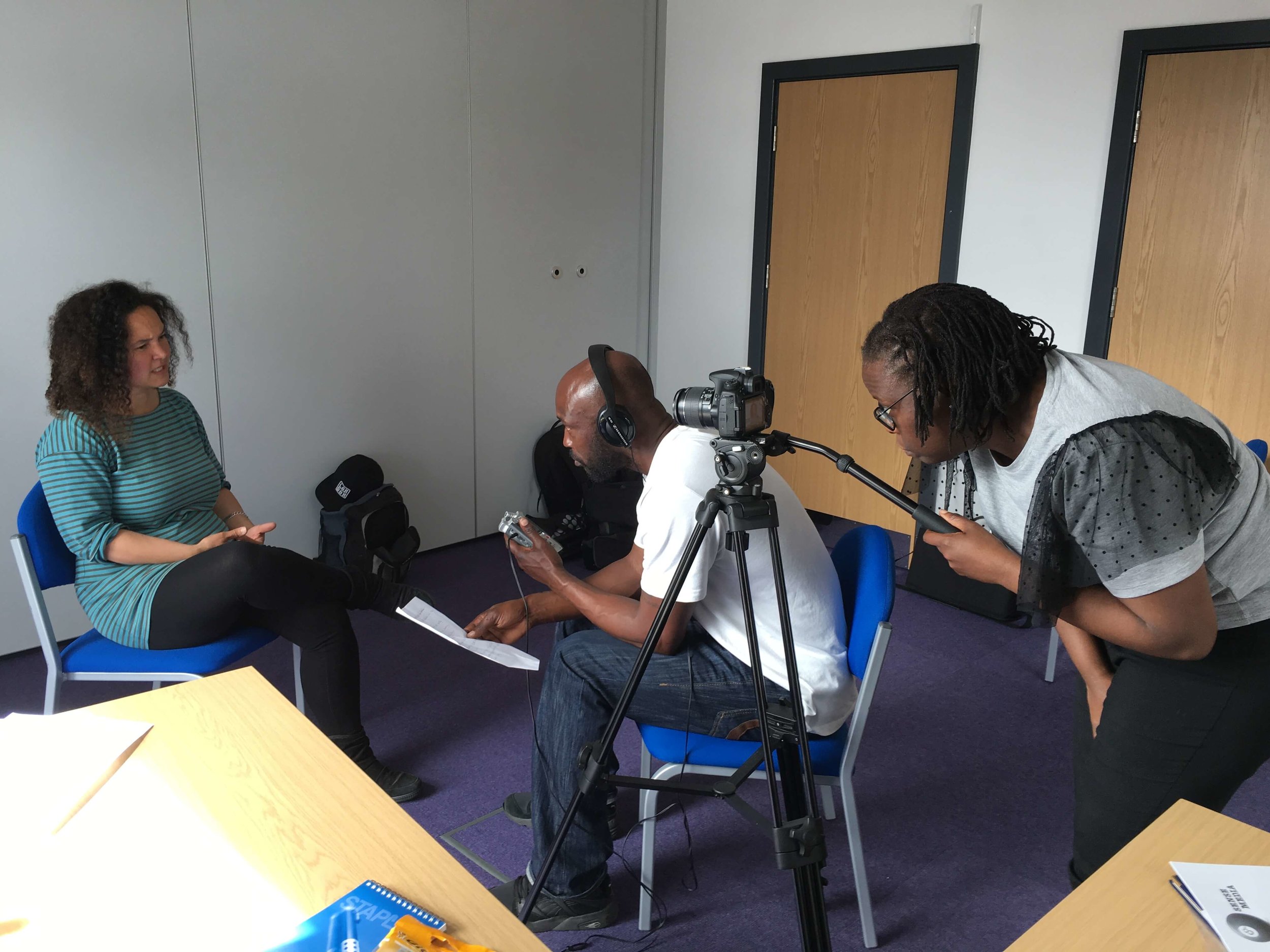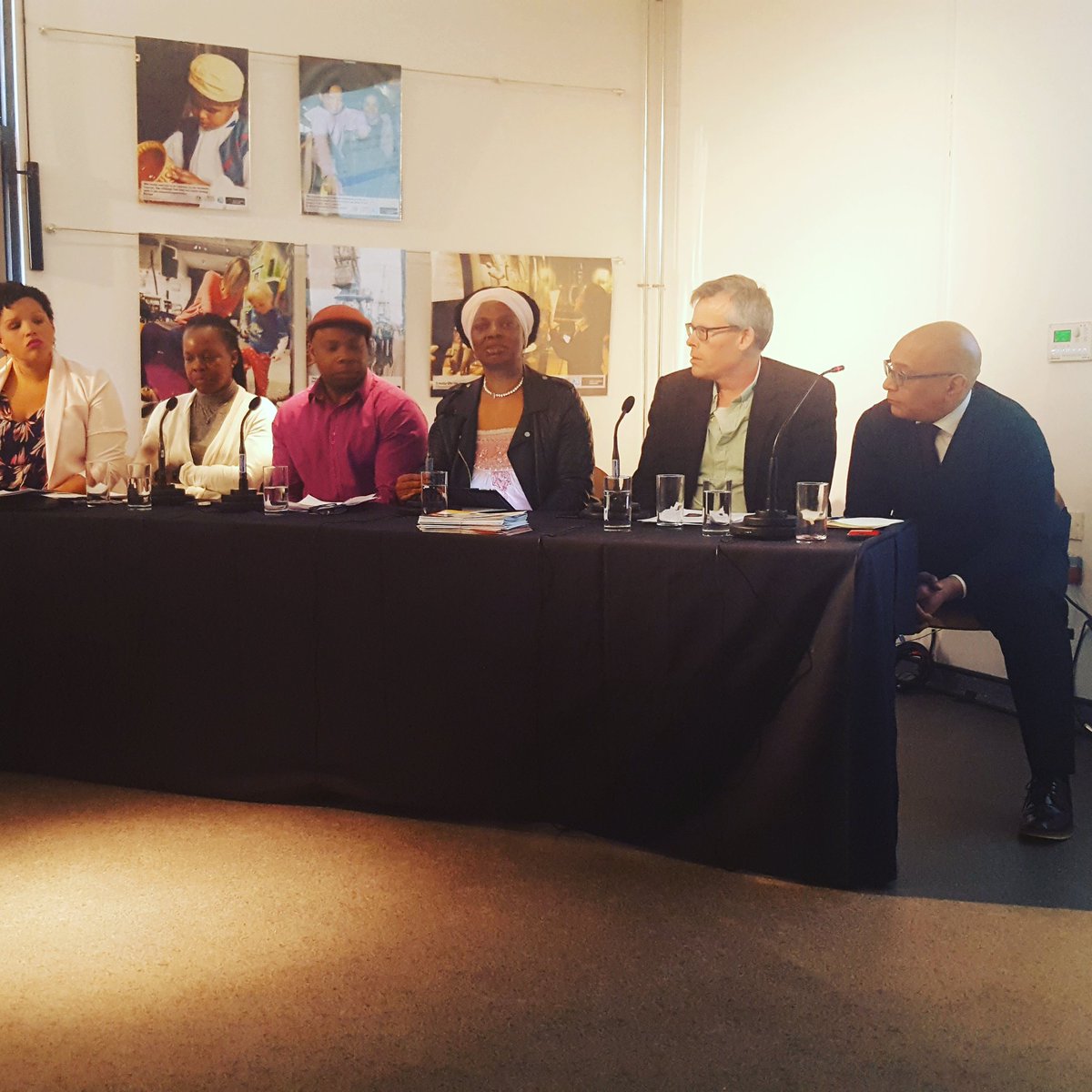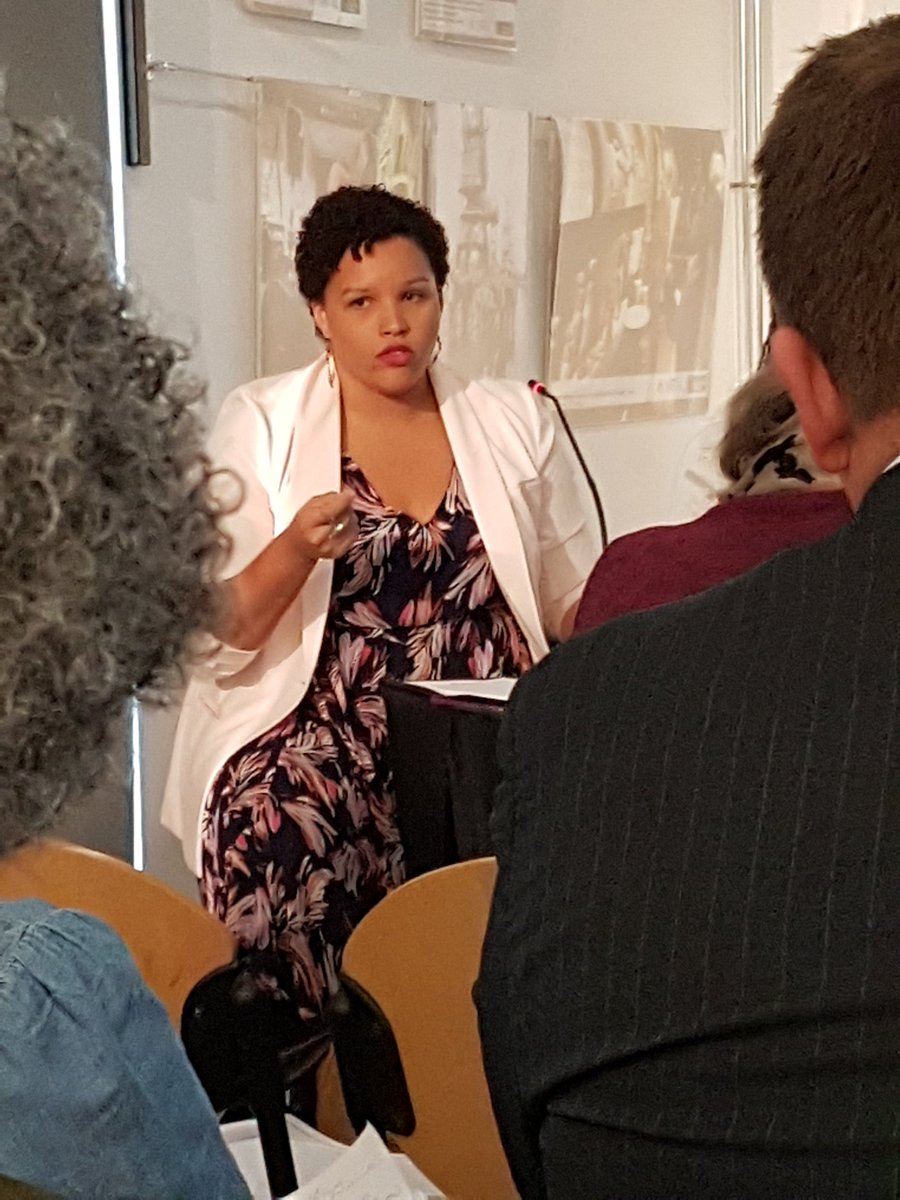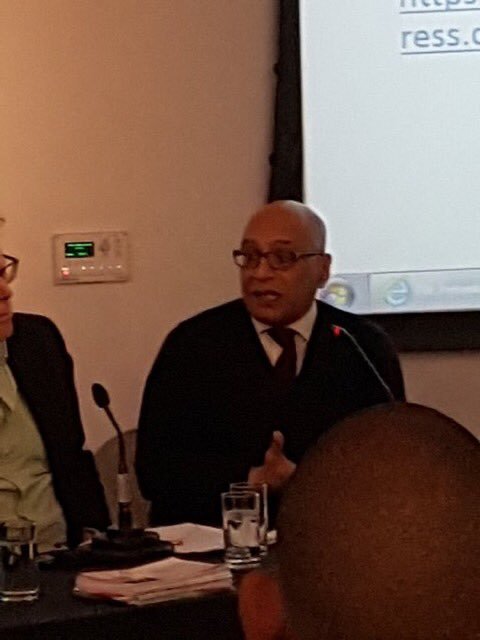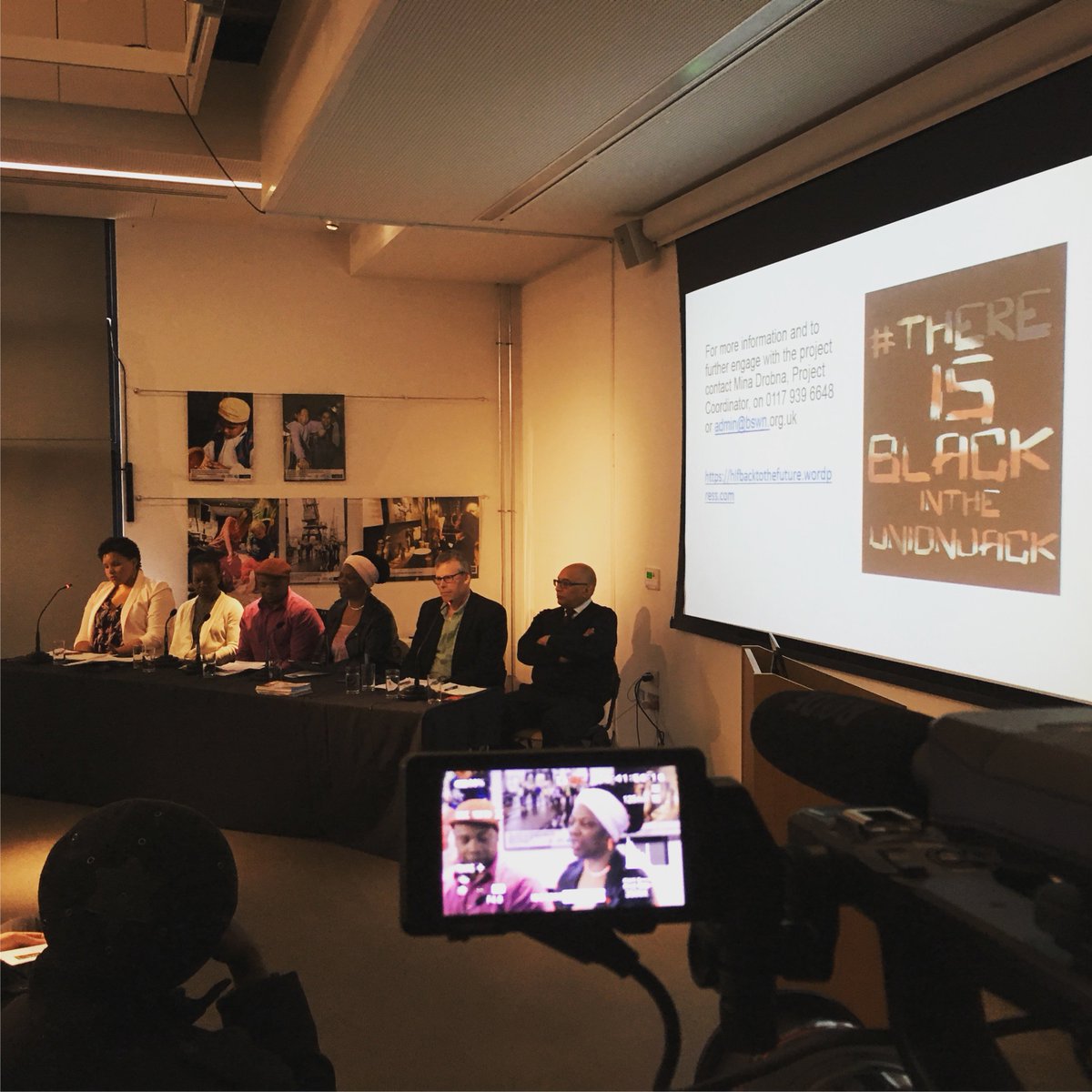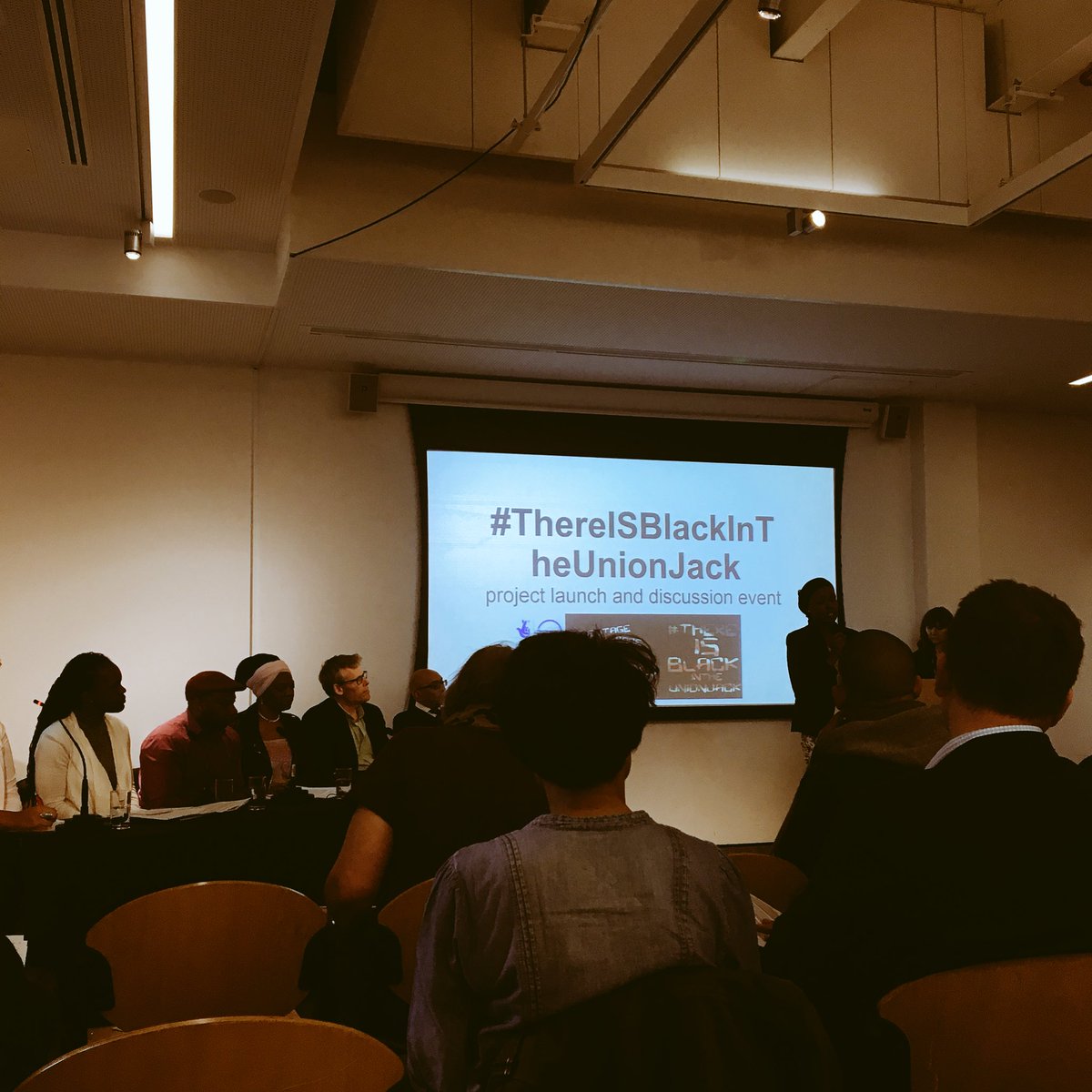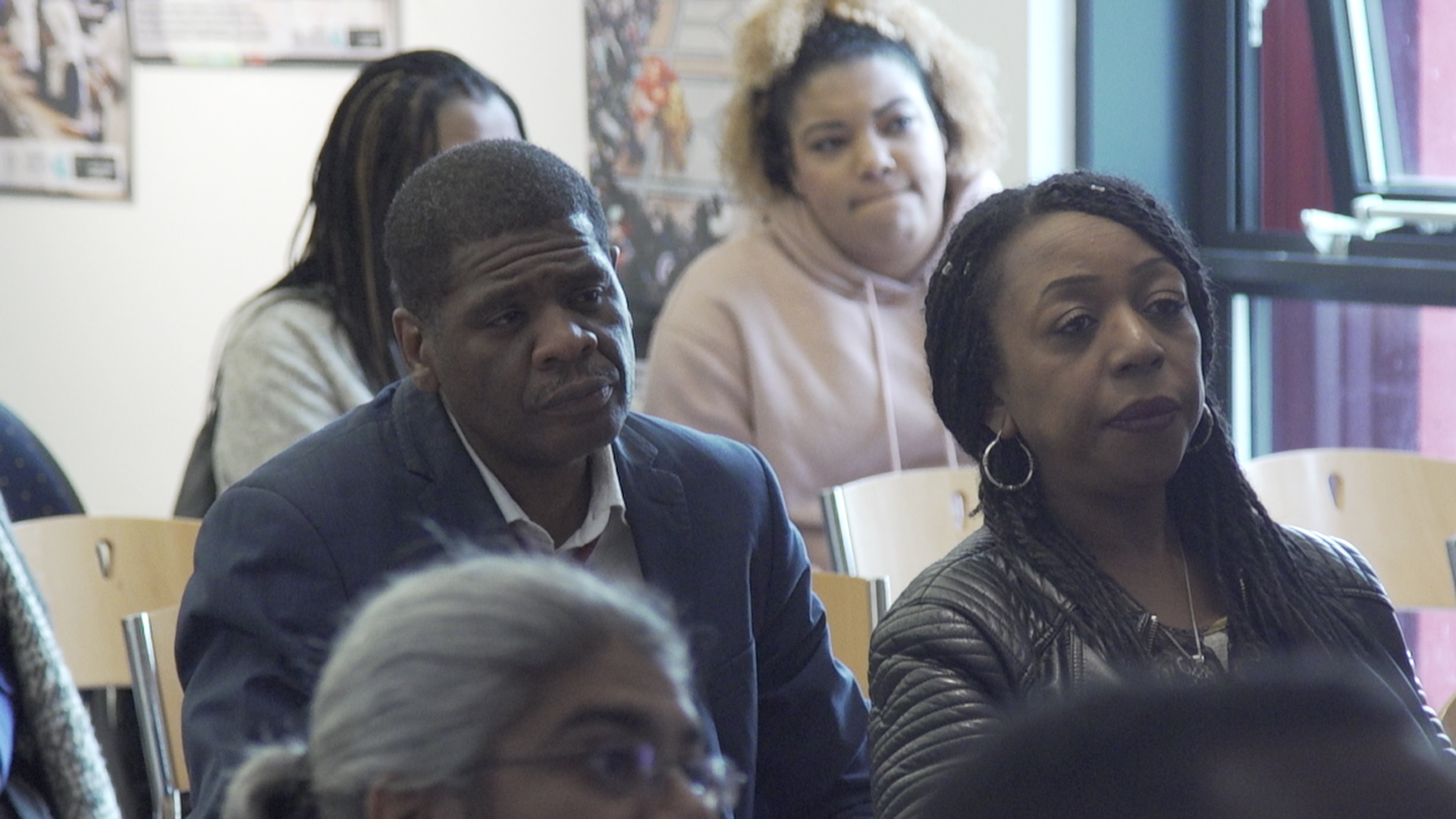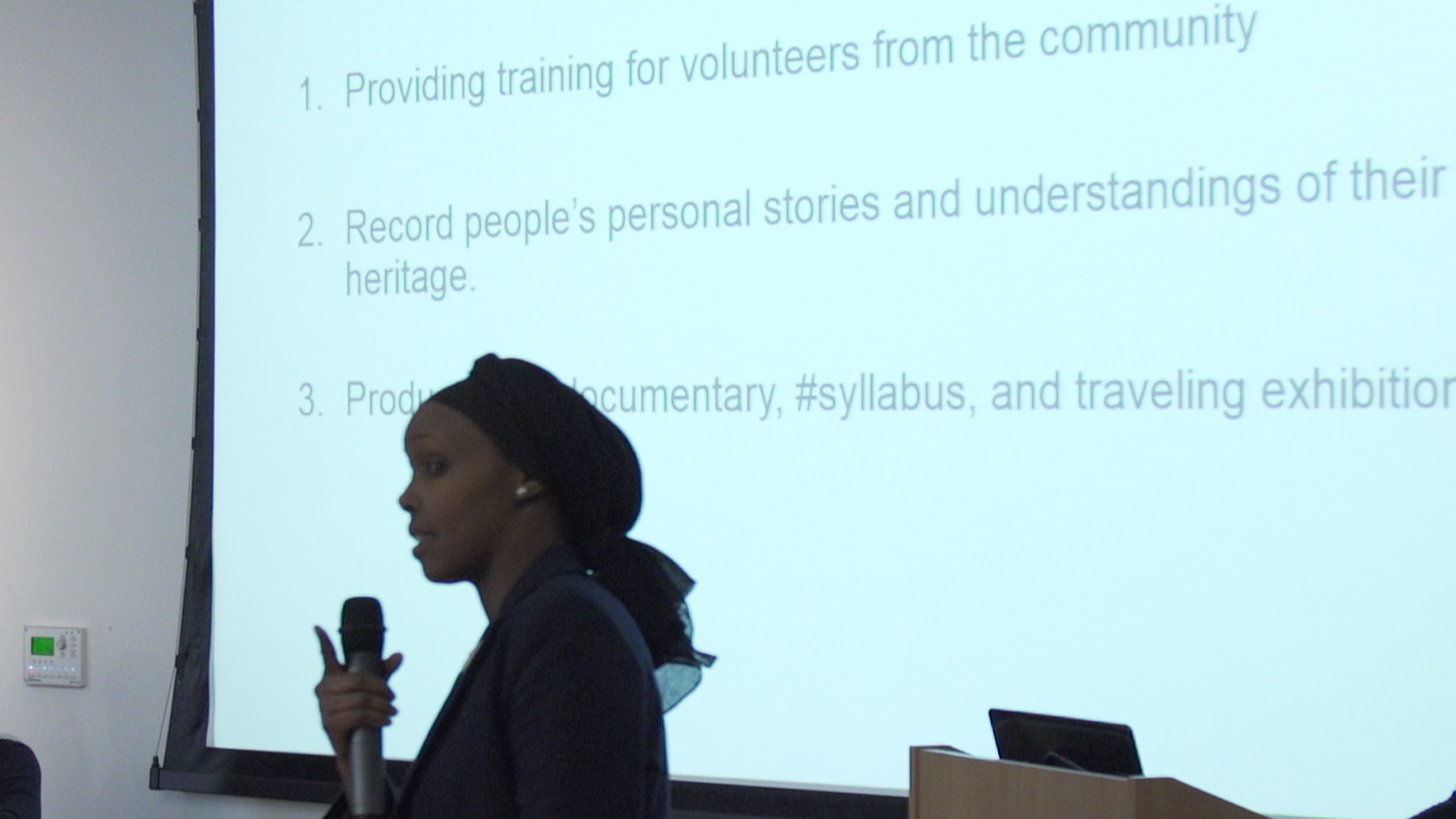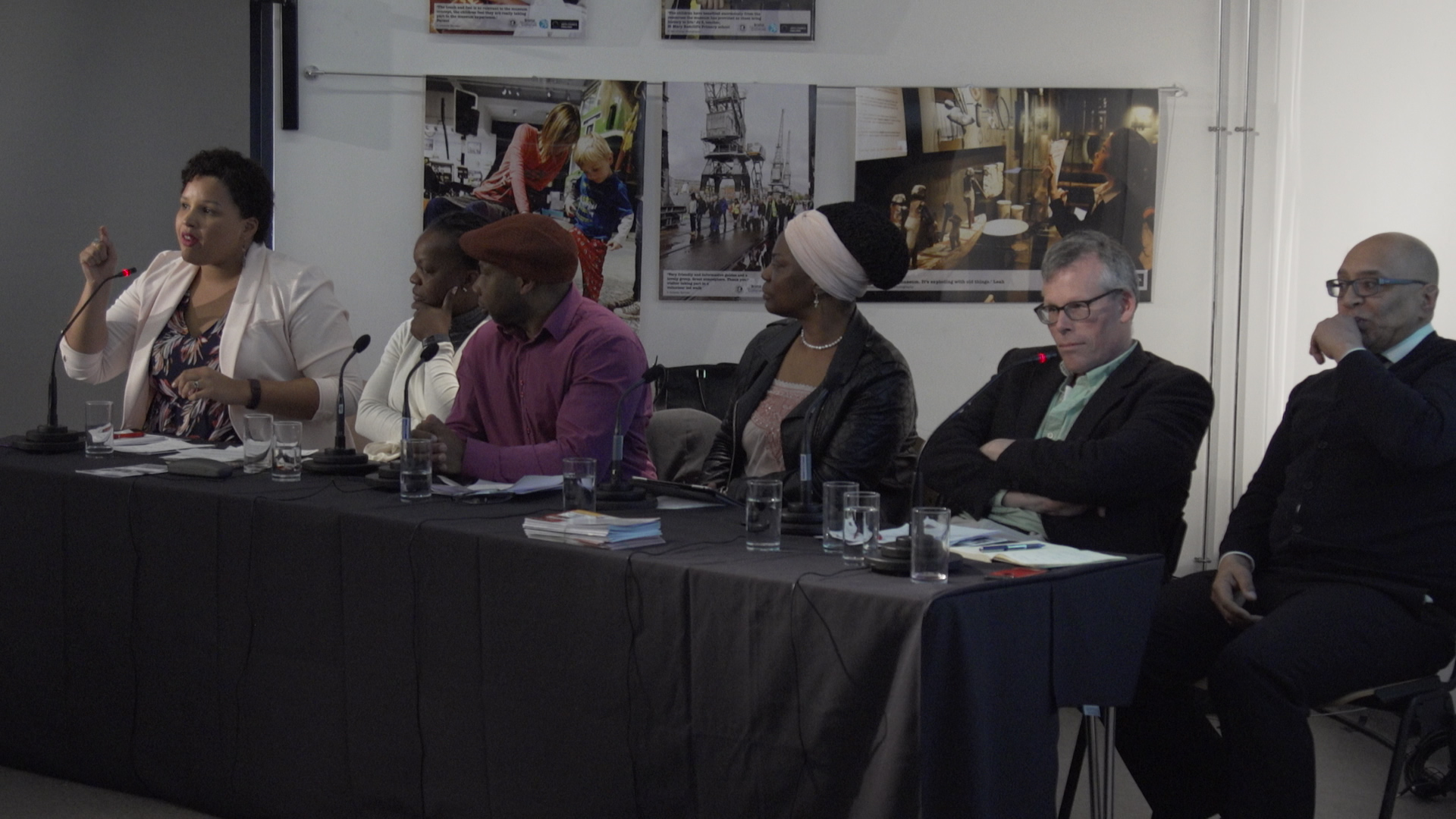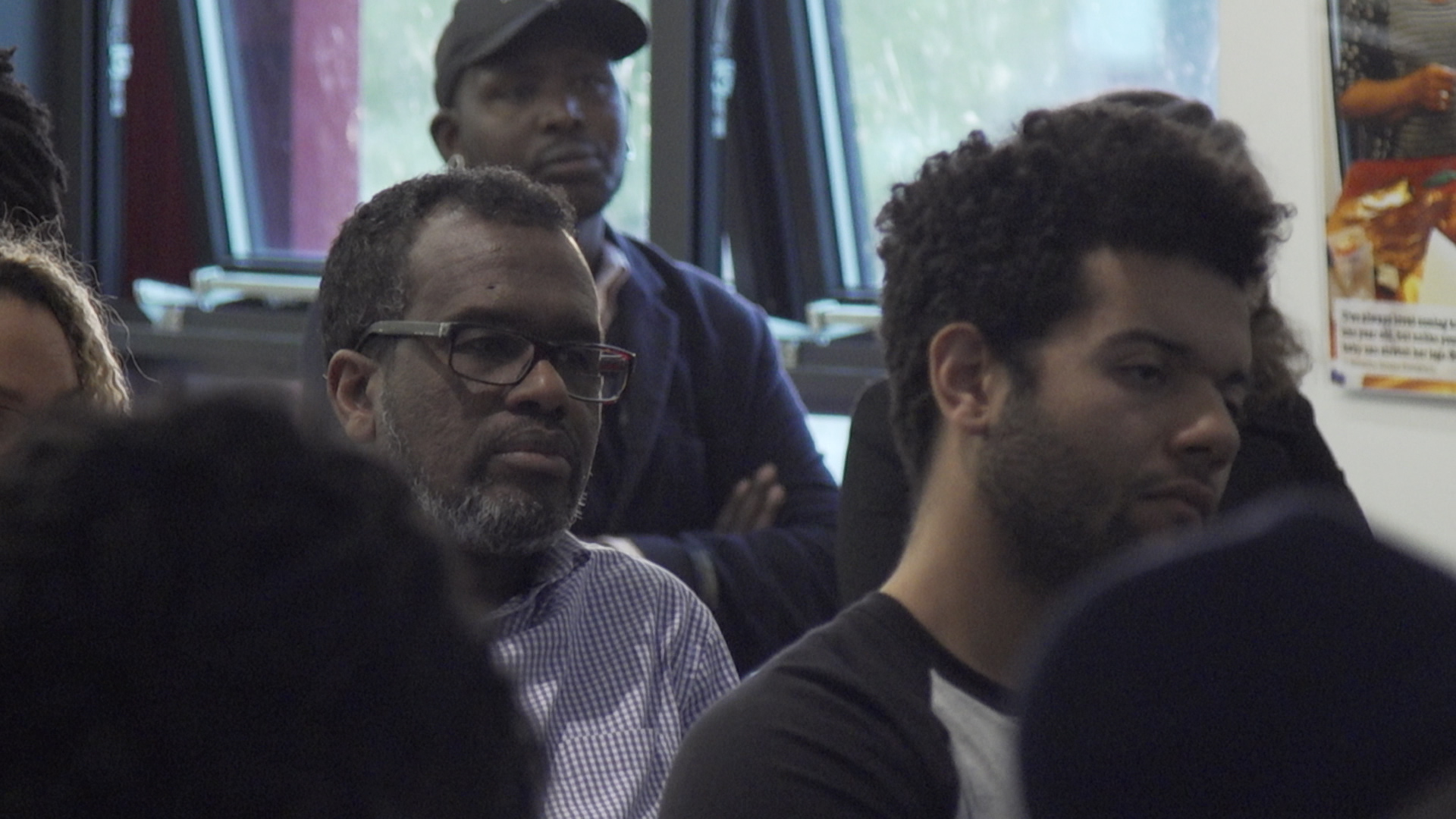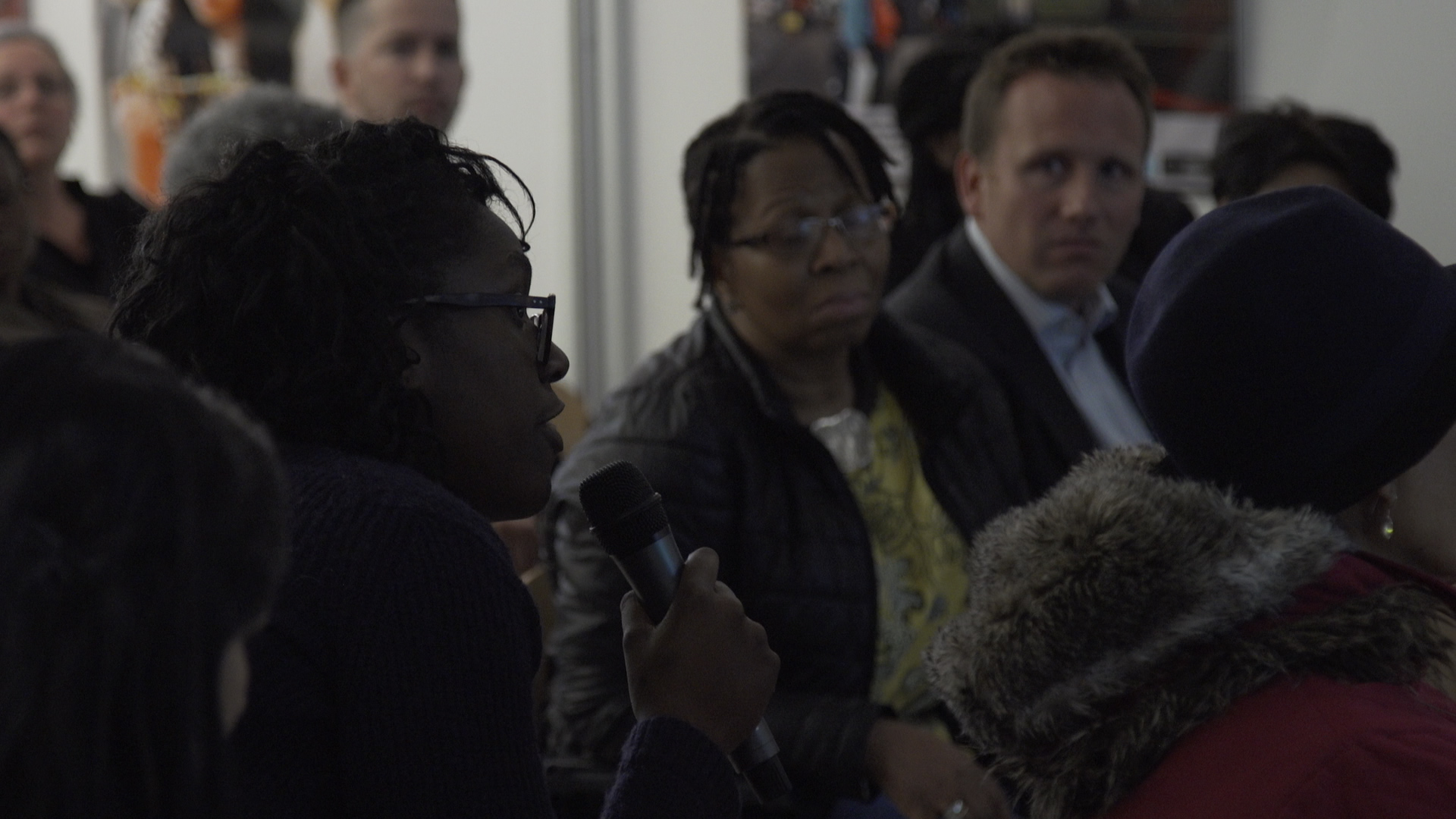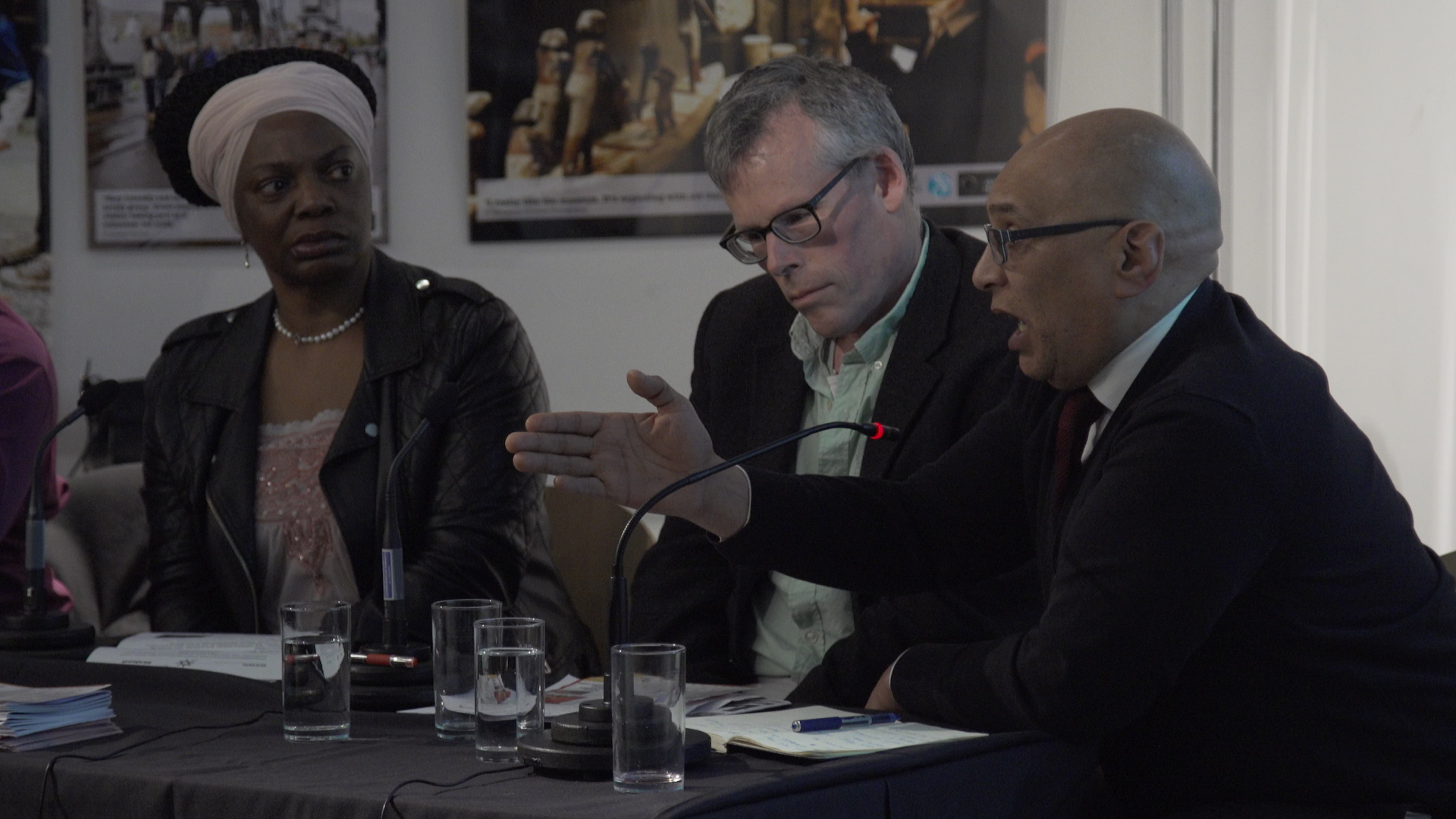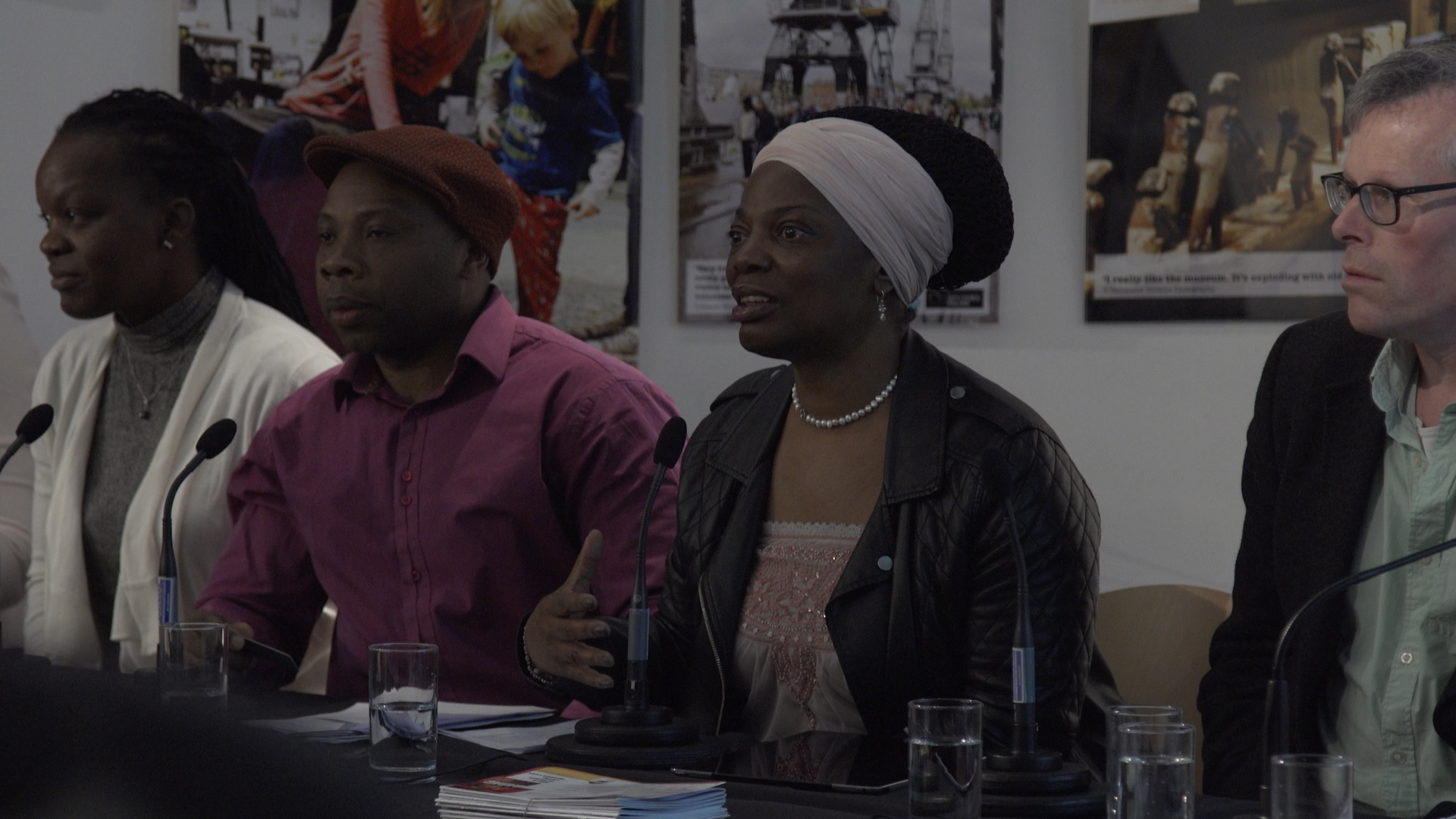Who are you?
I’m a small, rotund woman in my mid-40s with too much grey hair. I am British born of Indian descent from both my parents although my father twice migrated from India to East Africa and from there to the UK so he regards Dar es Salaam in Tanzania as his home. Actually, my father's arrival in the UK was not straightforward. Due to a change in immigration rules, he was detained at Heathrow Airport for two days while his entire family waited for him in arrivals. Then, he was forced onto a flight to Bombay where he lived in a hotel for three years while his family appealed to the Home Office and asked the Queen in a letter about how she would feel if Prince Charles could not come home! This puts me in mind of Donald Trump's attempts to keep Muslims out of the U.S. Anyway, while in Bombay, he met my mother over a game of cards. People are often surprised that they did not have an arranged marriage. I moved to Bristol from London six years ago, my miniature reflection of my parents’ migration journeys to the UK.
I’ve worked mainly in the voluntary sector since my teens supporting people and organisations in various, vulnerable situations, including BAME specific services. From my work and education, I have developed listening and reflecting skills. I have interviewed people before but until this course I had not handled a DSLR camera or recorded film and audio of an interview. Taking down oral history of people marginalised by the mainstream is something that I have wanted to do for about 10 years but I have been too busy making ends meet and supporting elderly and unwell relatives to have the time and money to learn how. When I heard about this course and that it was free to attend, I jumped at the chance.
What did you know about Race, Migration, Racism beforehand?
My formal schooling in Race, Migration and Racism started early. My nursery school teacher taught me loudly, furiously and embarrassingly that the ONLY language that I should EVER speak should be English. This was in the days before we realised that multilingualism was a good skill and anyone who spoke anything other than English was still eyed with suspicion. I wish I had a chance to tell that teacher how much of my background and culture I lost because that traumatic experience led me to not speaking my other two languages while my only grandparent was still alive and in this country. Meanwhile, at home, my immigrant teenage cousin would have her racially mixed friends party to a reggae and ska soundtrack. In London, I went from being one of three BME children in my school in the early 70s to being part of 40% of the population by the time I left in 2010.
There is definitely a schism between what I learned about Race, Migration and Racism in formal education and what I picked up along the way in the ‘school of life’. In the ‘70s and ‘80s, the debates around these issues on the streets were, to put it politely, blunt. Faeces through our letterbox, petrol followed by a lit match, bricks through our windows, being spat on in the street, being targetted with stones on the way to school, finding 'NF' and perverted swastika graffite on our front door, police not responding to calls, judge not convicting people and ending up homeless with a council that refused to help juxtaposed complete silence at school about Race, Migration and Racism save for the odd patronising, “Oh, but you are not like the others.”
By the ‘90s, this schism had widened. Publicly, politically correct language, though welcome for making people hesitate before unthinkingly insulting people like me and my family, also strangled the debate. If you don’t know what people really think of you, how can you engage in debate, alleviate fears and help to change opinions? At home though, I had visited my mother's family in India for the first and only time and I was learning more about the stories of my parents, grandparents and their peers. These stories contradicted the mainstream narratives about poor people in need of charity, weak people in need of protection, ill-educated people in need of instruction, etc. Like others my age, I realised just how brave, strong, educated, hard working and ill-treated my parents and grandparents were. Further, I realised that by holding them back, this country was wasting an incredible pool of talent. I contemplated my own identity in relation to them and in relation to several different versions of Britain and of India. For a brief, wonderful time, I navigated with others of my generation, seemingly to an Asian Dub Foundation soundtrack, the ‘Asian Invasion’.
In a fairytale twist, and after 15 years of sustained media campaigning against migrants and BAME people, Brexit’s kiss has revealed the ugly underneath the 2000s liberal enchantment. It's made me realise that we were not all on the same trajectory, after all. The far right, as expected has finally crawled out from under the stone it retreated to back in the 80s. However, it's those who call themselves liberals yet perpetrate subtle, racist attitudes who I am aghast at the most. Generally, I’m not surprised by the wheel turning society’s attitudes slowly but determinedly back to the 1970s yet, I hang perilously between the fear of what will happen to people like me, like my parents and the excitement of renewing the possibilities that were suffocated in the 90s through new movements like 'Black Lives Matters'. The difference now is that we have the internet and fast global reach.
What experience, if any have you had before the course of interviewing and recording members of the public?
I have done some market research in public, taken audio interviews on for research as a student but never filmed members of the public.
What experience, if any do you have of conducting archival research?
Informally, I carried out some archival research about my college years ago but I have not conducted any formal research.
What did you learn on Day 1, Day 2, Day 3, Day 4
Day 1
On Tuesday, I met and learned about the eight other people on the course and some of reasons why they are interested in participating. Sado took us through some background of Black South West Network and rationale for this course. We discussed with Edson how historical attitudes towards race echo today and how in some ways, even if the language is different, very little of the power dynamics have changed. As a historian, Madge was able to ground us in a brief history of immigration to Bristol over the last 1000 years, starting with the first ethnic cleansing of Jews from the UK via Bristol Castle in 1290 through to 21st century diverse immigration. For the first time, I heard about www.journeytojustice.org.uk
Day 2
On Wednesday, we met at the Bristol's Records Office to familiarise ourselves with the various ways in which records are kept. Then, we investigated the racial history of Bristol by asking pertinent questions of key documents provided to us.
Day 3
On Thursday, Michael showed us how a DSLR camera and sound recorder operate. The key thing that I learned was that where possible, leave the camera on automatic! In groups of three, we were able to play with the equipment indoors and outdoors. It certainly increased my confidence in using and handling this equipment. Michael also took us through the various camera shot types and angles.
On Friday, again in small groups, we brought together all the elements of the first three days. Michael took us through good interviewing techniques and questions, then was on hand while we took it in turns to interview each other on camera, film the interview and check the audio recording. Edson then took us through blog writing as Sado explained possible next steps. Finn invited us to participate in an exhibition at the M-Shed this September, Madge pointed out possible sources of historical oral and written history and we all frantically exchanged contact details and discussed how we would use what we have learned on this course.
Rounding up, how has the course changed your understanding of race, migration?
We squeezed so much into the 12 hours that we had and as I was leaving, I ended up talking with Trevor for about one hour. Trevor and I related as he moved to Bristol from London two years ago in his middle-age, just like me. An outsider, like me, Trevor has also been struck by the difference between London and Bristol in terms of race and migration. In London, our paths never crossed, but like all migrants, we spoke at length in our new home to compare notes. Finally, I said to him, “Talking with you makes me feel less mad.”
We are both surprised by the amount of segregation and subtle racism that we have faced, something that both of us consider we have not experienced in London for at least 20 years.
The course, too, helped me to ground suspicions that I had about race and migration in Bristol, the friendly, laid-back, liberal city that has an unacknowledged issue with race, in my opinion. This sense crystallises for me around the current simplistic debate to rename Colston Hall as if changing the name will erase the history of slavery associated with it and I must ask for whose benefit will this be?
I can't say that this course has changed my understanding of Race, Migration and Racism however, this course has given me a good grounding in Bristol's history which has increased my confidence with challenging negative attitudes in Bristol when I perceive them. As a relative newcomer to Bristol, I have been shocked by some of the attitudes that I have come across. However, I have felt that it was not my place as a non-Bristolian to challenge these. Being on this course has made me realise that actually, given my background and my experiences and given my understanding of the experiences of my parents and my peers, who is there better than me to challenge these negative attitudes?
Thank you so much to Sado, Edson, Madge, Michael, Finn and Mina for giving up your precious time for free in running this course.
Geetha











